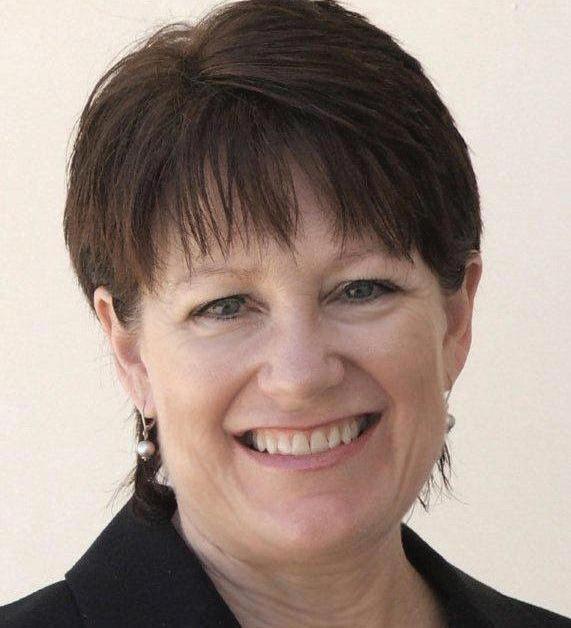Local rabbis and clergy gathered against Arizona’s abortion ban







Local rabbis and clergy gathered against Arizona’s abortion ban






On Nov. 2, the Tax & Legal Seminar, Arizona’s premier estate-planning event, will take place at the Arizona Biltmore. After attending virtually the last two years, the state’s CPAs, estate planning attorneys, financial planners and many more will meet in person once again.

Rachel Rabinovich, director of special projects for the Center for Jewish Philanthropy of Greater Phoenix (CJP), is excited that these professionals are able to network in a more traditional fashion this year.

“This event has a really phenomenal reputation, and we provide attendees with an excellent program, but they’re really there to see each other,” she said.
Still, for those who cannot attend in person, the
SEE TAX & LEGAL SEMINAR, PAGE 3


PRIDE
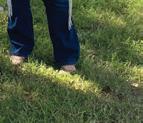
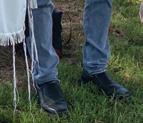
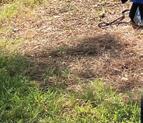
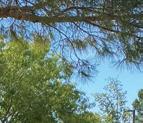
AZ Jews for Pride was joined by 400 fellow Jews at the Phoenix Pride Parade
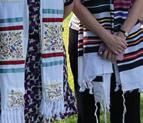
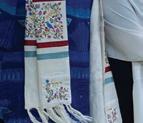
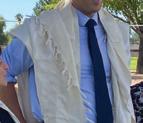



SHANNON LEVITT | STAFF WRITER
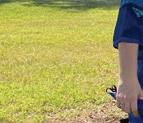
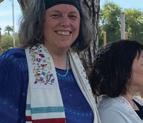
When Tony Zinman, founder of Tucson Jews for Justice, first learned about Andrew Torba, he immediately started worrying what effect he would have in Arizona.

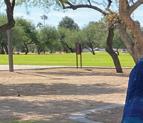
“I heard about Torba while following the governor’s race in Pennsylvania (Republican candidate Doug Mastriano was criticized for his relationship with Torba) and realized we’ll have the same problem with
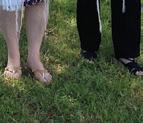
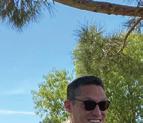
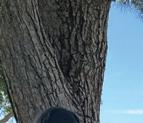
Torba, a self-identified Christian nationalist, began the social media site “Gab” as a way to establish a “parallel Christian society.”
Torba said that Jews are not welcome on the site, which is favored by the far-right because it permits speech that mainstream social media platforms have banned. Gab was used by the shooter who killed 11 Jews in their synagogue in Pittsburgh in 2018.
PAGE 2
Iris and Adam C. Singer’s art is on display in the exhibit, “In Our Time: Selections from the Singer Collection” at the Scottsdale Museum of Contemporary Art. See page 15. COURTESY OF SMOCA

Zinman’s fears were realized when Torba announced his endorsement of several Arizona Republicans this summer.
State Rep. Mark Finchem, a Republican representing the 11th district in Arizona and a candidate for secretary of state, touted the endorsement saying he was “honored” to have it.
And he’s not alone.
State Sen. Wendy Rogers also posted
released several public statements denouncing “hate and antisemitism” during this campaign season.
“Antisemitism is a cancer. Hate is a cancer. White supremacy is a cancer. Unfortunately, those cancers exist with some Arizona Republican officeholders and candidates. A few Republican leaders are adjacent to white supremacists. Others court their approval. Some endorse those antisemites,” JCRC said.
Then the Arizona congressman spoke at Fuentes’ America First conference.
Matt Brooks, executive director of the Republican Jewish Coalition (RJC), posted on his Twitter feed an article in the conservative National Review headlined “Paul Gosar Hangs Out with Racists to Own the Libs.”
“This is reprehensible, @RepGosar,” the RJC said in a tweet. “Your association with Fuentes, and this event are absolutely inexcusable. You must immediately cancel this event, apologize, and denounce antisemite and Holocaust-denier, Nick
Paul Rockower, executive director of JCRC, also condemned Gosar in a
“The JCRC is disgusted by the full embrace of white nationalists by AZ

By March 2022, Senate Minority Leader Mitch McConnell chastised Gosar for attending this year’s America First Political Action Conference in Orlando, saying, “There’s no place in the Republican Party for white supremacists
The RJC said the lawmaker’s participation
January 7
January 21
February 4
February 18
March 4
March 18
According to a 2022 report from the Anti-Defamation League, the number of antisemitic incidents in Arizona more than doubled in 2021 compared to 2020. Forty-one of those incidents were some form of harassment, and 15 were acts of vandalism.
There have been so many accusations that the non-partisan Jewish Community Relations Council of Greater Phoenix (JCRC), which “scrupulously avoids getting involved in electoral politics,”

U.S. Rep. Paul Gosar has been controversial for years for his support of right-wing conspiracy theories and his ties to extremists.
In 2021, Gosar drew the ire of Jewish groups across the political spectrum when he joined fundraising forces with Nick Fuentes, a white supremacist who questions the number of Jews who were killed in the Holocaust and believes that Israel has a malicious influence on U.S. policy.

Fuentes, who also founded the “groyper army,” a radical fringe group, said the Supreme Court could only overturn Roe v. Wade without Jews. “We need a government of Christians” and “Jewish people can be here, but they can’t make our laws.”
“If Ruth Bader Ginsburg, a Jewish woman, didn’t die last year, so that Amy Coney Barrett, a Catholic woman, could be appointed to the bench, we would still have Roe v. Wade,” Fuentes said. “Now you tell me that this is a Judeo-Christian country… You tell me that it doesn’t
August 5
August 19*
September 9
September 16
October 14**
October 21
March 25
April 1
April 8
May 6
May 20
June 10
July 8
July 29
| editor@jewishaz.com | advertising@jewishaz.com subscriptions@jewishaz.com | www.jewishaz.com
PUBLISHER Jewish Community Foundation of Greater Phoenix
GENERAL MANAGER Rich Solomon | 602.639.5861 rsolomon@jewishaz.com
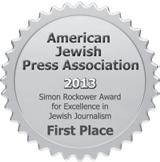
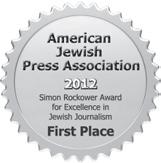
MANAGING EDITOR
Mala Blomquist | 602.639.5855 mblomquist@jewishaz.com
STAFF WRITER
Shannon Levitt | 602.639.5854 slevitt@jewishaz.com
ADVERTISING SALES CONSULTANT
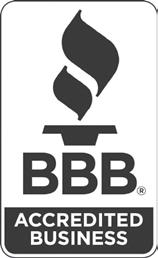
Jodi Lipson | 602.639.5866 jlipson@jewishaz.com
SUBSCRIPTIONS 602.870.9470 x 1 subscriptions@jewishaz.com
GRAPHIC DESIGNER
Jay Sevidal | 410.902.2313 ads_phoenixjn@midatlanticmedia.com
October 28
November 4
November 18
December 2
December 16
*Best of Magazine
**Annual Directory
WWW.JEWISHAZ.COM
Jaime Roberts, Publisher | 2013-2016
Florence Newmark Eckstein, Publisher | 1981-2013
Cecil Newmark, Publisher | 1961-1981
Pearl Newmark, Editor | 1961-1981
M.B. Goldman, Jr., Founder | 1948-1961
PROUD MEMBER OF
event will be livestreamed. A few watch parties are being organized by the Arizona Community Foundation (ACF), the event’s co-sponsor, in its Yuma, Flagstaff and Sierra Vista affiliate offices.
While some people who attend the seminar have networking top of mind, there are four hours of continuing education on offer, and much of the content is very technical.

For those without the appropriate background, “it might be hard to follow,” said Rabinovich.
Event speaker Joshua Rubenstein, Katten New York partner and chair of the firm’s private wealth department, agreed — with a slight caveat.
He said the professional audience of bankers, trustees and asset managers will be very familiar with the concepts he’s addressing, but it would be a mistake for him to assume that if he cites a section of the Internal Revenue Code, “they’ll just nod their heads and say, ‘Got it.’”
His task is to present enough information for the technophiles to learn something — especially those needing the four hours of continuing education — while also keeping the interest of those who are still relatively new to their roles.
“I’ll do my best to be informative and amusing at the same time,” he said. “I pride myself on being amusing — otherwise, people pull out phones and you lose them.”
Rubenstein is a popular speaker and travels to events several times a month. He will be bracketing his time in Arizona between speeches in Miami for the International Bar Association on Monday and in San Francisco for the American College of Trust and Estate Counsel on Friday and Saturday.
He knows how to engage an audience and has, on occasion, brought along his guitar. But there will be no time for leading songs in Phoenix.
Rubenstein will present a four-hour program on three related talks, and though there will be plenty to distinguish them, there is one underlying theme: How to keep up with change.
“We’ve been dealing with non-stop, protracted and unpredictable change, and even though as Heraclitus said 2,500 years ago, ‘the only constant is change,’ the rapidity of the change now and its unpredictable nature is different,” he said.
Rubenstein works with many private clients, which is “a world where you have to be able to tell people what to do,” he explained. “I help people figure out what really changed and what really didn’t.”
Knowing the difference is essential to keep clients from making mistakes, another thing he will talk about at the Biltmore on Nov. 2.
“I was a Greek and Latin major in college and the difference between tragedy and Greek tragedy is that with tragedy, bad things happen to people; but in Greek
tragedy, bad things keep happening. Many people can’t learn from mistakes and keep repeating them.”
Rubenstein always illustrates his points with a lot of examples. He never uses PowerPoint, however, because he wants to look at the faces in the audience to watch the reaction, which is why it’s so helpful that he’s able to present in person again.
“If they have a glazed look, I step back and give extra explanation,” he said.
The Tax & Legal Seminar was first presented by the Jewish Community Foundation of Greater Phoenix (JCF — now the Center for Jewish Philanthropy) in 1993 under Neal Kurn’s leadership, among others. It expanded the program by collaborating with ACF as a co-sponsor of the event beginning in 2001.



“I’ve done a lot of research and there are few communities around the country where the Jewish community works so closely with a secular community foundation on an event like this,” Rabinovich said.
She has worked on the annual event since starting at JCF in 2015, and she has found that each year has unique challenges, though none so much as the last two pandemic years.
“It is never easy putting on an event of this scale,” she said. “But it’s a labor of love.”
When dealing with less-than-glamorous details of the tax code, one might be tempted to think there’s never an exciting moment, but Rabinovich dared to differ.
A few years ago, right before the annual seminar, important changes to the tax code were passed into law. Professor Samuel Donaldson, that year’s speaker, changed his entire presentation within 48 hours to incorporate all of the new changes that were coming.
“It was remarkable,” said Rabinovich. “That real-time change was probably the most exciting thing that’s happened.”
Richard Kasper, CJP’s CEO, highlighted the seminar’s tremendous growth year over year — until the COVID-19 interruption in 2020.
“It used to be considered an outrageous success if we got 200 people to show up, but before the pandemic, we had 400 people showing up,” he said. He gives Rabinovich a lot of the credit for bringing in new sponsors every year, which increases
attendance and engagement.
Sponsorships help the organizers provide a high-level seminar and more than half of the tickets will be going to them. Those at the top-tier level can have a marketing table, which is a big selling point.
“When people show up in the morning, people are registering and then taking the time to look at the marketing tables,” Rabinovich said. “That’s probably my favorite part.”
She pointed out that there is still room for people who want to attend in person and online.
Kasper touted the seminar for providing valuable content.
“These are people who take their professional work very seriously. And this is very high-level stuff that they’re learning,” he said. “It might seem esoteric to the average civilian, but this is their work and they care about it.”
Much of the work is accomplished by the seminar’s planning committee, which comprises 50 people representing 50 different firms — law firms, accounting firms, banks, financial planning companies and others. This year’s chairperson is T.J. Ryan, a trust and probate litigation and estate planning attorney at the Frazer Ryan Goldberg & Arnold law firm in Phoenix. Kasper said, when 50 different firms want to participate as sponsors, “it’s a big deal, and it demonstrates how important this event has become to that professional community.”
This seminar is important to many people and Rabinovich enjoys helping ensure its success. Now that it’s less than a month away, she can start looking forward to next year’s, which already has some details in place.
On the morning of Nov. 2, she’ll make sure all the sponsor teams show up and that the photographer is there and gets all the right photos.
“Once they go into the ballroom,” she sighed, “I’m done.” JN Jewish
For more information on the seminar or to register, visit jewishphoenix.com/ events/2022-tax-legal-seminar/.
matter that we have a lot of Jewish people in government.”
Extremism trackers like the AntiDefamation League and Southern Poverty Law Center have long classified Fuentes as a hate group leader who advocates antisemitism and Holocaust denial, in addition to racist and nativist ideologies.
None of this deterred Gosar from associating with him.
Gosar also defended Torba and Gab, posting “They’ve been going after Andrew Torba for months now — some would say years — because the platform that he is building threatens the Liberal World Order and their control over what we’re allowed to say and see online. …I don’t listen to the media. I’m not leaving Gab.”
Gosar was another of the Arizona Republicans endorsed by Torba this summer.
This summer, both Finchem and Republican candidate for governor Kari Lake endorsed Jarrin Jackson, an Oklahoma antisemite running for that state’s senate. Jackson said, “the Jews” are evidence that “evil exists.”
Lake called Jackson a “fighter” and a “patriot” who is attacked by “the Soros media.”
After his antisemitic statements were pointed out to the Republican candidate, the Lake campaign issued a statement to Axios Phoenix saying that she would rescind her endorsement “(i)f his reported comments are true.”
“I looked at Jarrin’s resume as (a) Combat Veteran in Afghanistan. It is
impossible to dig into everything someone has said in their life,” Lake told the outlet.
After Lake rescinded her endorsement, the JCRC denounced it as “tepid” and “wholly insufficient.”
JCRC’s statement called out Lake for not being “bothered to speak, or even tweet, even the slightest denunciation of Jackson, let alone his racism, homophobia and antisemitism. For someone who wants to be the head of our state government, Lake seems remarkably afraid to show any leadership.”
Eric Ward, senior advisor for Western States Center — a pro-inclusive democracy organization — was glad to see Lake renounce antisemitism and rescind the endorsement.
“We hope more elected officials will do that and model a rejection of antisemitism and other forms of bigotry for the rest of the country,” he said. “But she has to go further and take leadership to push antisemitism outside of the Arizona GOP. That’s the real testimony if she understands the danger she endorsed.”
Finchem, on the other hand, stood by his endorsement of Jackson.
By the end of August, Adam Kwasman, former Arizona state representative and the last Jewish Republican elected official in the state legislature, had co-founded the coalition, “Jewish Voices for Kari Lake.”
Kwasman had reached out to Lake about his idea for the group before her endorsement of Jackson became controversy.
“She was thrilled, absolutely thrilled,” he said. “She wanted to ensure that the Jewish community was heard and it wasn’t just a platitude.”
Kwasman viewed the media around Lake’s Jackson endorsement as a
distraction and said Lake is on the right side of what he views as Jewish issues: a good relationship between Israel and Arizona, school choice and fighting against Boycott, Divestment, Sanctions (BDS).
At Fuentes’ conference, Rogers called for politicians who implemented coronavirus prevention mandates to be hanged. She also threatened to “destroy the career” of any Republican who called her out for her statements.
In July, Lake said she “absolutely denounces bigotry in all its forms, especially anti-semitism.” She also touted her support of good relations between Arizona and Israel and rejected Torba’s endorsement.
However, Lake’s campaign never explained why Lake endorsed a legislator with a lengthy history of making antisemitic statements in videos and on his social media.
Kwasman said he does not think Finchem is an antisemite, yet he made a clear distinction between the two candidates.
“Mark Finchem is not Kari Lake and
On March 1, Rogers was censured by the Arizona legislature for her violent threats.
Still, Republicans removed language in the censure calling out her racism and antisemitism because those statements are protected by the First Amendment, according to Arizona Senate President and Republican Karen Fann.


On Sept. 14, Finchem created a stir on Twitter by calling Arizona Democratic politicians “liars and deceivers,” whose “loyalty is to George Soros and Mike Bloomberg.”
Using Soros and Bloomberg this way, “as a symbol for Jewish control, wealth and power,” has been critiqued by many Jewish groups, including the American Jewish Committee, as an updated version of traditional antisemitic tropes.
Additionally, Fox News’ host Tucker Carlson is a leading proponent of the “great replacement theory,” an antiimmigration philosophy that united white supremacists across borders in their hatred of Jews and immigrants and inspired multiple mass murders, including
Earlier this year, Carlson produced a special focused on condemning the Jewish billionaire and philanthropist George Soros, who features in many right-wing conspiracy theories, including
“ANTISEMITISM IS A CANCER. HATE IS A CANCER. WHITE SUPREMACY IS A CANCER. UNFORTUNATELY, THOSE CANCERS EXIST WITH SOME ARIZONA REPUBLICAN OFFICEHOLDERS AND CANDIDATES. A FEW REPUBLICAN LEADERS ARE ADJACENT TO WHITE SUPREMACISTS. OTHERS COURT THEIR APPROVAL. SOME ENDORSE THOSE ANTISEMITES.”
























he believes in words.’”
Whether he sees himself as a troll, Sept. 14 wasn’t the first or last time Finchem used the Soros’ trope. He told Jewish News, however, that it’s not about religion.
“I do not consider one’s religion when examining political positions. I care about their political position exclusively,” Finchem said, via email.
Finchem, who represents Oro Valley outside of Tucson, is still the main focus of Zinman’s concern for the Jewish community.

“At this point, Finchem has crossed the line and can’t convince me he’s not an antisemite. He can say he’s not but he doubles down on Soros and Bloomberg — it’s plausible deniability but he knows who his crowd is,” Zinman said.
Indeed, JCRC and National Council of Jewish Women Arizona (NCJW AZ), were quick to tweet responses accusing Finchem of a reliance on “antisemitic tropes.”
Finchem’s response was to tweet, “Calling out Soros and Bloomberg and their political objectives is not antiSemitic. This is a political discussion, not a religious one. I love the Jewish people.”
Adrian Fontes, Finchem’s Democratic opponent, also raised the issue. On Oct.
2, Fontes tweeted, “I have to ask you @ RealMarkFinchem to please stop using anti-Semitic tropes. I condemn their use, yet you refuse to flatly deny you hate Jews.”
Finchem responded, “I love the Jewish people you Soros-funded moron.”
Fontes told Jewish News, “Mark Finchem has continually used antisemitic dog whistles to rile up the most bigoted members of his coalition.”
Finchem continued to use Soros’ name as a cudgel. On Oct. 3, Finchem tweeted, “Soros wants to run Arizona with the Fontes-Hobbs-Mayes-Kelly regime.”
Though he would not respond to the question of what “loving the Jewish people” means while still using antisemitic tropes, Finchem tweeted: “Wishing all of my Jewish friends in Arizona, America and around the world a meaningful #YomKippur and Gmar Chatima Tova. May we all be inscribed in the book of life” on Oct. 4.
Yet on the holiday itself, he tweeted, “nobody trusts the Soros press” @ Dillon Rosenblatt, a Jewish journalist whose newsletter Fourth Estate 48, outed Finchem, a harsh critic of mail-in ballots, as having voted early by mail in every election but two since 2004 — the 2007 Tucson city election and the August 2022 primary.
Abe Hamadeh, the Republican candidate for attorney general, also used Soros’ name in his tweets to represent something dark and powerful, out to destroy the innocent.
On June 27, Hamadeh tweeted, “George Soros is on the cusp of dominating Arizona. We won’t let that happen.”
JCRC tweeted in response, “Antisemitism is on the cusp of dominating Arizona, with the use of Soros as an antisemitic bogeyman. We won’t let that happen. Act appropriately, and stop using antisemitism to further your political campaign.”
Hamadeh apparently didn’t take note, as he tweeted on Aug, 5, “George Soros has destroyed our streets and turned our cities into Gotham.”
His past social media posts also surfaced during the campaign.
In 2008, he favored cutting U.S. funding to Israel and wrote of his opposition to Israel’s existence in several of his posts on the Ron Paul Forum.
“If you think Jews arent big in america (2%) how come 56% of them are CEO’S … Jews are influential and for the most part rich. its good were targetting Arabs now, next will target Jews,” Hamadeh wrote in July 2007.
Rogers also tweets regularly about George Soros and “globalists,” another term often seen as a dog whistle for Jews. Earlier this year, she called Volodymyr Zelensky, Ukraine’s Jewish president, a “globalist puppet for Soros and the Clintons.”
She tweeted on Feb. 26, “I stand with the Christians worldwide not the global bankers who are shoving godlessness and degeneracy in our face.”
Gosar’s usage of the George Soros’ trope has been called out repeatedly since 2017.
Lake also used the Soros’ name indiscriminately.

Before the August primary, she told Steve Bannon on his podcast that RINOs (Republicans In Name Only) were “in cahoots with the Soros types on the left.”
Bannon was the White House Chief Strategist for former President Donald Trump until he was fired after eight months.
She included Cindy McCain in this group, saying, “They’re globalists and they want — I think they want an end to America. They want a globalist agenda, a new world order, whatever you want to call it.”
Blake Masters, Republican candidate for U.S. Senate, alluded in April to the antisemitic “great replacement theory” by accusing Democrats of attempting “to change the demographics of our country” by letting in immigrants.

And in 2006, he posted a conspiracy theory that Rothschild was one of the main forces behind the U.S.’ entry into World War I, drawing on the work of C. Edward Griffin, who stated that the notorious antisemitic forgery, “The Protocols of the Elders of Zion” described the world as it is.
However, most of the criticism dogging Masters was unearthed by Jewish Insider, which scoured Masters’ online postings from nearly two decades ago to construct an image of an iconoclastic libertarian who more recently claimed to embrace Republican orthodoxies.
Among the online posts that drew scrutiny was one in which Masters included what he said was a “poignant quotation” from the Nazi official Herman Goering to argue against U.S. intervention in foreign conflicts. On the campaign trail, Masters emphasized that he had not praised Goering — but that did little to assuage the concerns of his

“MARK FINCHEM HAS CONTINUALLY USED ANTISEMITIC DOG WHISTLES TO RILE UP THE MOST BIGOTED MEMBERS OF HIS COALITION.” ADRIAN FONTES

Rabbi Bonnie Sharfman’s voice was soft and restrained as she called together a gathering of interfaith clergy at Desert Horizon Park in Scottsdale on Friday, Oct. 7, at 9:30 a.m. The longer she spoke, however, the louder and more assertive her voice became.

“This is an event to call attention to the draconian laws that are happening in Arizona,” she began.
“As we speak, there are women’s lives in danger and there are medical personnel who will not come to practice in the state of Arizona for fear they may be imprisoned for two to five years,” she said, with an angry timbre.
The morning’s prayer circle, which included six local rabbis representing Reform, Conservative and Orthodox perspectives, was to call attention to the Civil War-era abortion ban, which was put into effect Sept. 23. This ban outlaws all abortions in the state, except when the life of the mother is at risk, which is left to a doctor’s “good faith clinical judgment” and has caused much confusion and consternation among doctors, hospitals and pregnant people.
Just hours after the religious leaders met, the Arizona Court of Appeals issued a stay enjoining the 1864 ban temporarily and leaving the 15-week abortion ban in place. The court said the older ban couldn’t be enforced until an appeal to the court of a Pima County case runs its course.
Civia Tamarkin, president of National Council of Jewish Women Arizona, was the morning’s only official speaker. She asked attendees to consider the emotional, psychological, physical and economic harm that is the likely fallout of abortion restrictions across the country, and more specifically, in Arizona.
After the stay was announced, Tamarkin pointed to the power of prayer.
“No one is taking lightly the power of collective prayer from diverse backgrounds crying out for healing and justice.”
However, the 15-week ban leaves lives in jeopardy, she said, “especially from incomplete miscarriages and pregnancy complications that doctors are too afraid to treat.”
Thus, Friday’s prayer circle will continue to matter because it highlighted that the legislation is not about “choice” but about overall health care accessibility.
It was meant to bring interfaith clergy together “to pray for an end to the pain, to the suffering and to call for the healing of
everyone who is affected — this is an issue about humanity,” Tamarkin said.
Sharfman, president of the Board of Rabbis of Greater Phoenix and rabbi of Congregation Kehillah in Cave Creek, agreed.
“These are matters of the heart, matters of the soul,” she said.
Sharfman invited the clergy to form a circle — “where we always turn, ultimately” — and asked those who wished to speak to do so.
Rabbi Debbie Stiel of Temple Solel in Paradise Valley expressed fear for anyone who, “for whatever reason,” needs to terminate a pregnancy. She said she “trembles at what they face” and offered her support for them and their bodies.
Rabbi Sara Mason-Barkin of Scottsdale’s Congregation Beth Israel (CBI) referenced a prayer, the Unetanah Tokef, recited on Yom Kippur, which acknowledges, “we don’t know what lies ahead for each one of us.”
She said it’s not up to the state of Arizona to decide what pregnant people do with their bodies.
“I pray that anyone who has anything to do with making these kinds of decisions will let the power lie in the hands of the people who need to make these choices for themselves.”
Rabbi Nitzan Stein Kokin of Beth El Congregation in Phoenix expressed her concern for young people “who just discovered love in their life and who are now encountering existential fear of what this might include.”
She prayed they would have strength, their parents would be good role models and those in charge would “find fair and human legislation on these issues.”
Rabbi Cookie Olshein of Temple Emanuel of Tempe reminded everyone that as of Friday, there are 32 days until the general election, when decisions will be made that will impact the community.
She prayed for clergy to have the strength to inspire civic responsibility, to educate people about the law’s impact and, especially, “to know that it is our obligation to speak for those who have no voices.”
Rev. Kate Lehman, the pastor of St. Teresa of Ávila Ecumenical Catholic Community in Phoenix, shared a very personal story about the birth of her son in 1972, pre-Roe. She shared a room with a woman whose baby had been dead for two months yet remained in her body. At that time, the law stipulated she had to wait until her body forced out the lifeless fetus.
“My heart hurt so much for her,” she said. “What we do to our fellow humans is not understandable. I pray that anyone who thinks they know best would realize there are a million stories.”
Rev. Anne Ellsworth, a priest in the Episcopal Diocese of Arizona, said all the clergy came from traditions that honor women. She prayed for an end to the misogyny that drives public policy, for equal rights and solidarity.
Rabbi Dr. Shmuly Yanklowitz, president and dean of Valley Beit Midrash, also joined the prayer circle but chose not to speak.
He told Jewish News after the event
that he wanted only “to be a silent ally, supporting in presence.”
After the last person spoke, everyone in attendance was invited to read a nondenominational prayer asking for courage, strength and perseverance in the pursuit of justice.
A few non-clergy also came to witness the event.
Tracy Contant, an OB-GYN and CBI congregant, was there to thank the clergy with her presence.
“I want to be part of something bigger
In this time of unprecedented breakdown in civil discourse, find out how Jewish tradition can empower us to engage more constructively in disagreements. By the end of these four online classes, you will be better able to:

• Navigate difficult conversations
• Be a voice for respectful dialogue during these conversations

• Understand why these conversations are difficult
• Have a network of peers with shared training and support
• Be a better leader within your Jewish community
Cost: $60
• Register: evjcc.org/constructive



Everyone has BRCA1 and BRCA2 genes, but only some have mutations in those genes. According to the Centers for Disease Control and Prevention, about 1 in every 500 women in the United States has a mutation in either her BRCA1 or BRCA2 gene. About 50 out of 100 women with a BRCA gene mutation will get breast cancer by the time they turn 70, compared to only 7 out of 100 women in the general United States’ population.
Since 2004, the nonprofit Minkoff Center for Jewish Genetics has been serving both Jews and non-Jews in Greater Phoenix through education, genetic screening and referral services for BRCA and other hereditary cancers.




On Sunday, Oct. 23, at 1 p.m., the Minkoff Center will be holding a genetic education and counseling event in conjunction with Congregation Beth El Phoenix’s Social Action Committee and Women’s League. The event will begin with a reception followed by a brief educational program starting at 2 p.m. Following the group program,
personalized prenatal and hereditary counseling sessions will be conducted to
give participants individual advice and care.
“This is the first event that we’ve ever done that has had both the BRCA and prenatal counseling, education and screening all under the same roof — and it’s in person,” said Wendy Carriere, the Minkoff Center’s executive director. “The founder, Sherman Minkoff, who passed away in 2018, was a huge proponent of in-person [events].”
Dr. Katherine Hunt Brendish is a director and clinical professor in the College of Health Solutions at Arizona State University. She joined ASU in 2019, coming from the Mayo Clinic School of Medicine, where she was an assistant professor in the Department of Clinical Genomics. A certified genetic counselor, Hunt Brendish, who is also Jewish, has been the director of the BRCA program at the Minkoff Center since it started the program in 2018.
“The event provides couples/individuals access to genetic counseling and genetic testing for conditions that could affect their offspring. The genetic counselors affiliated with the center will follow up with participants once their results are available and provide additional counseling and information, if necessary,” said Hunt Brendish.
“In addition, we will provide a brief overview of risk factors for hereditary forms of cancer in the Ashkenazi Jewish population, followed by personalized genetic counseling with a certified genetic counselor. The one-on-one genetic counseling will involve a discussion about possible risks for carrying a hereditary cancer
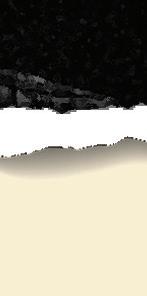
gene as well as information about where to get genetic testing in the community.”





Carriere expressed appreciation to Sara Ziskin at Beth El for reaching out to her and offering to host the event. Ziskin is a member of the Beth El Social Action Committee along with Barbara Lewkowitz (chair), Debbie Gordon, Leisah Woldoff and Sara Zilversmit.
“We have events each month to support various projects in the broader community,” said Ziskin. “For October, we decided that we wanted to recognize breast cancer awareness month and to provide information and screening to Beth El members and to the broader community. We contacted the Minkoff Center to work on the event with us and provide their expertise. As we planned the event, we broadened it to also provide prenatal information and screening.”
This is the first in-person event the Minkoff Center held since the pandemic, when they provided their services virtually.
“The pandemic allowed us to shift our programming as we provided two virtual programs,” said Hunt Brendish. “The first program focused on information and patient experiences with hereditary breast and ovarian cancer and the second program focused on a couples’ experience with prenatal carrier screening.”

Carriere explained the center has also changed its mission statement to include the word “support” to be more sensitive to the landscape after the pandemic.
“Everybody neglected some portion of health care when it was closed down,” said Carriere. “Our organization is trying to be more agile than we were before. We’re listening to what the community wants.”
Hunt Brendish encourages anyone interested in either prenatal screening or education about hereditary cancer syndromes to attend the event. “There is no obligation to undergo prenatal genetic screening if you are not interested. In addition, if someone has questions about their family history of cancer and are not sure whether they should undergo genetic testing, the event will provide individuals an opportunity to get all their questions answered.”
“Everybody knows somebody who has had cancer and if it’s hereditary you have to know,” said Carriere. “We have this concept of ‘previvor’ where you haven’t gone through it yet. Obviously, there’s the cancer survivor but you want to be in that place where you’re just being monitored all the time, so you never have to deal with it.” JN

For more information or to register, visit jewishgeneticsaz.org.

CONTINUED FROM PAGE 6
critics, including from within Arizona’s Jewish community.
“The overlap between conspiracy theorists and antisemites is quite strong,” Tim Eckstein, JCRC’s chair, told Jewish Insider in June. “Masters is no exception. The Goering quote is, in and of itself, not antisemitic. It is that Masters cannot appreciate that other non-Nazis have said similar things, and there is something pernicious in quoting Goering, or any other prominent member of that murderous regime. For him, it is all one big game.”
CONTINUED FROM PAGE 7
than myself when I advocate for women every day,” she said.
She was accompanied by Jennifer Kirshner, another CBI congregant, who came because “more voices are necessary in this battle,” she said.
“The religious right has kidnapped this pro-life movement and I’m thrilled to see the faith community come together — it’s really beautiful.”
After the event, Stein Kokin told Jewish News that she hoped to see balanced
Masters also received Torba’s endorsement but did not promote it.
Finchem was the only Republican candidate to respond to Jewish News’ requests for comment.
Zinman is frustrated with the Jewish leadership in Arizona, who he said is not speaking up enough about Republican antisemitism.
“It’s me and the Phoenix JCRC and nobody else in leadership is speaking up,” he said. “In the Jewish community, we don’t want to offend people so we don’t speak out.”


Adam Metzendorf, who lost his
legislation and pointed out that Jewish law is nuanced on the question of abortion.
“It’s a case-to-case thing,” she said. “It’s important that we don’t just have ancient laws — we’re in the 21st century and the legislature needs to speak to our reality.”
She decided to speak about young people because, as a mother of two young girls, “young people are particularly on my mind.”

The rabbi said she has witnessed the “tremendous fear” of teenagers who don’t know what the future holds — something “we took for granted.”
Sharfman called Arizona’s bans “an

candidacy in the Democratic primary for Arizona’s 1st Congressional District in the U.S. House wrote about the issue of antisemitism in the Republican party for Arizona Mirror.
“I see people repeating antisemitic tropes and inciting crowds. These crowds don’t explicitly say the word Jew — instead they say “Soros”, “Bloomberg”, or “Globalist Agenda,” as if these words aren’t equally documented as being guises for antisemitism,” he wrote.
He called out Rachel Mitchell, Republican candidate for Maricopa County Attorney, for fear mongering about the “Soros machine,” Lake’s diatribes against “the globalist agenda”
infringement on our religious rights” that interferes with “religious liberty, something we cannot tolerate.”
According to polling, American Jews support abortion rights more than any other religious group. Non-Orthodox Jews have been at the fore of advocacy against the current sweep of abortion legislation. Some Orthodox groups have said they applaud the Dobbs v. Jackson decision while still believing that abortion should be permitted in some cases. Scholars of Jewish law largely agree that it requires abortion when the pregnant person’s health is at risk, though there is disagreement about what
and Finchem’s tweets about “loyalty.. to George Soros and Mike Bloomberg.”
JCRC called out many Republicans for antisemitic statements, but said that “the Arizona GOP has many leaders of character. The Jewish community appreciates those who have spoken out against their colleagues who, regrettably, continue to associate with antisemites and white supremacists, and who pander to those with antisemitic beliefs.”
Still, Zinman said, it’s not enough.
“We’re not a big enough tent to have fascists and antisemites in our tent. The rabbis need to speak out and the community leaders need to speak out. I get a lot of ‘I’m with you but I can’t go public.’” JN
constitutes such a risk.
Imam Omar Tawil, associate imam and chaplain of the Islamic Community Center of Tempe and Arizona State University, was planning to attend but was called away for a death in his community.
Paul Rockower, executive director of Jewish Community Relations Council of Greater Phoenix and Eddie Chavez Calderon, Arizona Jews for Justice’s campaign director, were also in attendance. JN
This article incorporated material from Jewish Telegraphic Agency.
AZ Jews for Pride was the largest organized walking group in the Phoenix Pride Parade on Sunday, Oct. 16.

That’s a far cry from 2016 when Temple Chai Cantor Ross Wolman and Rabbi Mari Charnow — who moved to California last year — went to the parade with their families and found themselves wondering, “Where are the Jews? There are no Jewish organizations in the parade.”
They were determined to do something about that absence.
In 2017, Jewish Phoenix came into existence and 100 people signed up to march. In 2018, the number of Jewish marchers doubled; the following year, it was up to 300 people. In 2020, the group became AZ Jews for Pride, but COVID-19 meant there would be no parade that year. Then, in 2021, the parade moved from April to November but, unfortunately, it fell on Shabbat.
This year, AZ Jews for Pride was back in business. Because Sunday was Erev Shemini Atzeret, however, some people who might have driven from Tucson or Flagstaff were
dissuaded from coming.
T-shirts. (Every year, the group orders T-shirts in a different color of the pride flag — this year it was yellow.)
for Pride co-chair, Cat White, as well as the “amazing support” the synagogues and Jewish organizations give the group.
White said she was astounded at the number of people who signed up, given
“Having such a big visible group is really awesome,” she said.
That big show of support matters a lot to people like Scruffy Cohen, who identifies as non-binary and pansexual. They came out at 19 while attending the University of Arizona.
“I was presenting as someone that I wasn’t for way too long and it really took a toll on my mental health,” they said. “Coming out was so liberating and freeing — once I came out to myself, I knew I had to share it with the world.”
Finding Keshet, a Jewish LGBTQ advocacy organization, was also important for Cohen.
“Connecting with other trans and nonbinary people is the biggest thing for me,” they said.
Many people came to the parade to demonstrate allyship with the LGBTQ community.
Temple Chai Rabbi Emily Segal was there on Sunday with her husband, Rabbi Scott Segal, and their kids, Samantha and Ezra.
“We’re here in support of everyone being exactly who they are and loving who they love because we’re all made in the image of God,” she said.
“And because parades are fun,” Samantha added.
There were many Jewish families scattered around the staging area preparing to march and many said it was critical to bring young children to teach them acceptance from an early age.
Matthew and Chi Isiogu came with their 2-year-old daughter, Ekwi.
They wanted to show love and support to their family members and friends who are part of the LGBTQ community.
“We want them to know they matter and we stand with them,” said Chi, Temple Chai’s program director.
“It’s important to raise our daughter in this community of acceptance and support,” Matthew said.
Zac Abrams and his wife brought their 6-month-old daughter.
“We want her to know that every person matters, every person should get to be exactly who they are — we want to instill that value in her now,” Abrams said.

Temple Emanuel of Tempe member Rebecca Weinstein brought her kids, Olivia and Lexi, to support friends in the LGBTQ community and because “we believe that love is love.”

Weinstein added that it was also a great way to “spend a beautiful morning with our Jewish community.”
After a day of rain on Saturday, Sunday was cool and overcast and the marchers were treated to lower-than-expected temperatures.
Several college students and young adults were there to celebrate Pride with their Jewish friends.
Mason Marks, Aleeza Kaplan, Sophie Rehrig and Ilana Berlin wandered around together laughing and said they came out to support the LGBTQ community and to have fun.
“Plus, it’s Sukkot and we’re all supposed to dwell under one sukkah,” added Marks.
Many Jews just came with their T-shirts and a desire to be there for another vulnerable minority community.
Steve Perlmutter came to the parade because “I support folks who are discriminated against — it’s the Jewish thing to do.” JN
For more information on AZ Jews for Pride, visit jewishphoenix.com/organization/az-jews-for-pride

Donald Trump, the former U.S. president, has once again said he is baffled by the lack of appreciation he feels coming from American Jews.
“No president has done more for Israel than I have,” he said on Truth Social, the social media platform he owns. “Somewhat surprisingly, however, our wonderful Evangelicals are far more appreciative of this than people of the Jewish faith, especially those living in the U.S.”
He added, “U.S. Jews have to get their act together and appreciate what they have in Israel — before it is too late!”
It’s not clear what prompted the posting, but it echoes comments that he made multiple times as president.
The posting comes days after the rightwing Zionist Organization of America announced that it would bestow on Trump a rare honor, listing his multiple initiatives that aligned U.S. policy more with Israel’s hawks, including moving the U.S. embassy to Jerusalem, cutting funding to the Palestinians, exiting the Iran deal and recognizing Israelis sovereignty in the Golan Heights.
The announcement came the same day that the congressional committee investigating the Jan. 6, 2021, insurrection at the U.S. Capitol voted unanimously to subpoena him to testify about his role in stoking the event, which the committee has learned was substantial.
Trump’s frustration over his reception among American Jews was a preoccupation for him during his presidency. Depending on the exit survey, Trump scored between 21% and 30% of the Jewish vote in 2020, reflecting the tendency for decades of Jewish voters to favor Democrats by about 70%. He found some significant support among Orthodox Jews, who have grown more politically conservative on average in recent decades. But he also drew particular revulsion in some Jewish quarters because of his willingness at times to accept the backing of antisemitic extremists.

Nonpartisan Jewish groups condemned Trump’s comments on Sunday, Oct. 16.
“Support for the Jewish state never gives one license to lecture American Jews, nor does it ever give the right to draw baseless judgments about the ties between U.S. Jews and Israel,” the American Jewish Committee said in a tweet. “And to be clear, those ties are strong and enduring.”
“We don’t need the former president, who curries favor with extremists and antisemites, to lecture us about the US-Israel relationship,” said AntiDefamation League CEO Jonathan Greenblatt, also in a tweet. “It is not about a quid pro quo; it rests on shared values and security interests. This Jewsplaining’ is insulting and disgusting.”
In Israel, where Trump is indeed popular, his message drew attention for appearing to contain a threat against American Jews who do not share his outlook on Israel.
“Nothing to see here,” tweeted Yaakov Katz, editor of the Jerusalem Post. “Just a former US president using threatening language about American Jews at a time when antisemitism is on a global rise.”
It’s not the first time Trump has appeared to take personally his low polling among Jews.
“I saw a poll that in the last election, I got 25% of the Jewish vote and I said here I have a son-in-law and a daughter who are Jewish, I have beautiful grandchildren that are Jewish,” Trump said in 2020 in a White House Rosh Hashanah call with Jewish leaders. “I have all of these incredible achievements. I’m amazed that [polling] seems to be almost automatically a Democrat.”
In 2019, Trump said Jews who voted Democratic showed “great disloyalty,” although he apparently meant the disloyalty was to Israel and not to him personally. In reported remarks, he has told colleagues that he believes that Jews are loyal above all to themselves.
The ZOA said it would award Trump the Theodor Herzl Medallion, previously bestowed on Lord Balfour, the British leader who drafted the document envisioning a Jewish national home in Palestine; Winston Churchill, the World War II-era British prime minister; Harry Truman, the U.S. president who recognized Israel at its founding against the counsel of some of his top advisers; David Ben Gurion, the first Israeli prime minister; Golda Meir, Israel’s prime minister during the 1973 Yom Kippur War; Menachem Begin, the prime minister who made peace with Egypt; and and Sheldon Adelson, the late casino magnate and backer of Republican and pro-Israel causes.
Trump will receive the medallion in person in New York on Nov. 13, Morton Klein, the ZOA president, told the Jewish
Telegraphic Agency. The group has faced criticism from others in the Jewish community over Klein’s embrace of ideas espoused
by many of Trump’s supporters. But coalitions of Jewish groups have so far not acceded to calls to eject ZOA over that embrace. JN
On Oct. 19, Sarah Kader joined ADL Arizona as Community Manager — an entirely new role for the region. Sarah brings with her a keen knowledge of the Jewish community of Arizona. Born and raised in Arizona, Sarah attended University of Arizona for her undergraduate education with a foray outside of the Southwest to attend Syracuse University for law school.
After obtaining her law degree, Sarah worked as a staff attorney at the Arizona Center for Disability Law for eight years, representing people with disabilities in federal litigation and administrative appeals. For as long as she can remember, Kader takes pride in supporting marginalized communities.
“I have long known the good and irreplaceable work of ADL locally and worldwide,” said Kader. “I care deeply about our Arizona community and am thrilled that my career of public service has led me to this moment; to join ADL and work toward its mission of securing justice for all. It is truly a dream come true and feels particularly poignant at this time of year, as we begin 5783 — the new year on the Jewish calendar.”
In 2018, she joined the Arizona Statewide Independent Living Council as their director of operations, also serving as the chair of the Arizona Disability Coalition. In 2020, Kader joined Children’s Action Alliance and the Arizona Center for Economic Progress as its director of strategic campaigns and political affairs.

Kader is the granddaughter of Holocaust survivors and honors the memory of her family through her civic engagement in the Jewish community and beyond.
“We are thrilled to have Sarah join the team and serve as a key builder of communities in the state,” said Jolie
The Center for Jewish Philanthropy of Greater Phoenix (CJP) has awarded more than $1.4 million in its 2022 grant cycle to Jewish organizations, programs and services throughout the Valley, in Israel and other overseas locations. This marks the first combined grant cycle since the Jewish Community Foundation of Greater Phoenix and Jewish Federation of Greater Phoenix integrated in 2021.
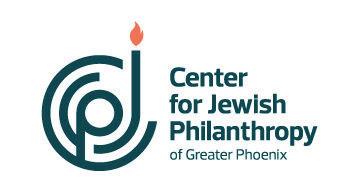
The CJP awarded grants to 36 organizations that provide programs and services including community engagement, education, Holocaust awareness and senior and youth services. Nine of these organizations are in Israel and other overseas locations.
“The CJP recognizes the significant and valuable contributions that have been made in our community from both the Federation and the Foundation throughout the years,” said Richard Kasper, CEO of CJP. “With these grants, we continue to focus on supporting community needs and enriching Jewish lives in our community through the many programs and initiatives that touch the lives of thousands of individuals every year.”
This year’s grant recipients include:
• East Valley Jewish Community Center, general support and Auschwitz Live, virtual tours for students, $83,000
• Hillel Jewish Student Center at ASU, general support and Hillel Co-Op, $80,500
• Jewish Community Relations Council (JCRC), expansion of JCRC work statewide, $20,000
• JewishPhoenix.com, community website, $83,000
• Valley of the Sun Jewish Community Center, general support, $433,000
• Bureau of Jewish Education, general support, IGNITE – Inspire and Empower Today’s Jewish Educators, and Wise Aging, $62,000
• Shabbat Project Arizona, Life Purpose, Empowered Marriage and Parenting: How to Overcome Stress, Negativity and Anxiety, $2,500
• Valley Beit Midrash, education programs, $19,250
• Oasis School, $12,000
• Pardes Jewish Day School, $16,719
• Phoenix Hebrew Academy, $6,744
• Shearim Torah High School, $2,665
• Torah Day School, $17,114
• Yeshiva High School of Arizona, $1,758
Brislin, ADL Arizona’s regional director. “Her experience speaks for itself and knowing her deep passion for the work, I have no doubt she will do wonderful things when it comes to building coalitions and community outreach to fight hate, bigotry and antisemitism throughout Arizona.”

The concept behind the Shabbat Project is that Jews from across the world — religious, secular, traditional, young or old — unite annually to keep one full Shabbat together, in accordance with Jewish law. This year, The Shabbat
• Arizona Jewish Historical Society, Life in Shadows: Hidden Children and the Holocaust $10,000
• ASU, Center for Jewish Studies, Genocide Awareness Week, $10,000
• Chabad of Arizona, Smile on Seniors (SOS), $10,000
• Chabad House, Smile on Seniors West Valley, $10,000
• Senior Rides Program, $53,000
• Jewish Family and Children’s Service, Jewish community services, Virtual Center for Senior Enrichment, senior concierge, $266,500
• Kivel Campus of Care, Jewish services and programs, $5,000
SERVICES
• Chabad of Arizona, Friendship Circle, $10,000
• Ezras Cholim, Shabbat dinners for Jews in need, $13,000
• Gesher Disability Resources, general support and camp assistance for children with disabilities, $32,100
• Minkoff Center for Jewish Genetics, BRCA Positive Support Network, $8,500
• Lehadleek, Jewish youth outreach, $10,000
• West Coast NCSY, Take Away 2K, $6,000
• American Jewish Joint Distribution Committee, general support and humanitarian assistance for elderly Jews in the former Soviet Union, $14,000
• Hillel: The Right to Choose, support for Ex-Ultra-Orthodox women, single mothers and children, $10,301
• Itworks: Empowering people, single mothers from poverty to stability, $10,000
• Jewish Agency for Israel, general support and absorption of Ethiopian immigrants in Israel, $14,000
• Jewish Federations of North America, Ukraine relief, $50,000
• Mavoi Satum, A World Without Agunot, $10,000
• Orr Shalom for children and youth at risk, Beating the Odds, $10,000
• Shekel: Inclusion for people with disabilities, medical supervision at the Hettena School/Day Center, $9,052
• Women’s Spirit: Financial independence for women survivors of violence, Breaking the Bind, $4,366
Project is happening Nov. 11-12, with more than one million Jews participating in over 1,600 cities in 101 countries across the globe.
“As Jewish women we have the DNA of our foremothers Sarah, Rivkah, Rachel and Leah. More than we have kept the Shabbat, the Shabbat has kept us! With the habitual ritual of making challah and lighting candles we are getting ready to immerse in the 25-hour spa for our body and soul,” said Robin Meyerson, director of Shabbat Project Arizona and Project Inspire Arizona.
Dr. Mel and Mim Bottner brought The Shabbat Project to Arizona nine years ago in memory of their daughter, Lauren Chaya Bottner.
In Phoenix, women and girls can gather ahead of The Shabbat Project for the Great Arizona Challah and Frumba Bake on Thursday, November 10 at 6 p.m. at Menachem Mendel Academy's auditorium at 6140 E. Thunderbird Road in Scottsdale. There are 300 seats available and the first free 200 registered attendees will receive a free gift.
A new program this year is Challah In A Bag Bake led by Rebbetzin Tzipora Gellman from Chicago. Gellman is a Zumba expert who will lead the challah bake and then get the women and girls up out of their seats while the dough is rising for a kosher Zumba work out.
In addition, Jordan Urnovitz, the 2016 Arizona Top Chef who appeared on Food Network’s Guy’s Grocery Games as a contestant, will demonstrate several savory and traditional Shabbat dips.
Award-winning author Judy Laufer, (J.E. Laufer) is co-chair of this year’s event and introduced the idea of honoring and recognizing Jewish preschool directors and teachers in the Greater Phoenix area. “They have such an important role in our community and their value has often been overlooked,” said Laufer.
All the Jewish preschools that send a representative to the challah bake will be recognized and awarded a signed copy of “Simply Sharing Shabbat” by Laufer for their school.
The community-wide event includes participation from nearly 30 local organizations and Shabbat Project Arizona is entirely run by volunteers. The community is invited to keep the worldwide Shabbat at their home or be placed in one of the many homes for dinners and lunches around town.
To be placed for Shabbat or to register for any of the programs, please call 602-469-1606 or visit shabbatprojectaz.com.
Valley Beit Midrash and Arizona Jews for Justice present the 2022 Jewish Changemaker Tzedek Award for Excellence in Service and Character to Eliana Jaffee and Zachary Etzioni.

"Zachary and Eliana represent the best of our tradition as teen exemplars living the eternal Jewish values of chesed (kindness) and tzedek (justice). They have come into our office almost every week for over a year
to serve homeless populations, refugees and asylum seekers, and have provided crucial and consistent relief and aid." said
Rabbi Dr. Shmuly Yanklowitz, president and dean of Valley Beit Midrash.
Valley Beit Midrash (a global center for learning and action) is a pluralistic nonprofit organization rooted in Jewish ethics that is committed to improving lives in our communities through Torah learning, social action and leadership development.

An Initiative of Valley Beit Midrash, Arizona Jews for Justice (AJJ) is the fastestgrowing Jewish social justice organization in the Southwest. Guided by Jewish ethics, AJJ and AJJ’s volunteers take action in pursuit of a more just world.
Jennifer Gerwarges, program director of U. S. Vets-Phoenix, was all smiles as she accepted a $2,000 check from Jewish War Veterans, Post 619 (JWV) in Sun Lakes at their meeting on Oct. 16.

U. S. Vets is opening a new housing project, Ashley Place, on Nov. 1. The project, gifted by the Milanovich Trust in collaboration with the Habitat for Humanity, consists of two houses which can hold five women each. These residences provide a safe and sober living environment where women with children can receive treatment for sexual trauma, substance misuse, work re-entry counseling and assistance in receiving disability payments. Ashley Place will support female veterans working towards employment and permanent housing.
In addition to a monetary contribution from Post 619, members attending the JWV October meeting brought hygiene products to donate to the residents of Ashly Place.
JWV veteran and member Gabe Forsberg, who volunteers for many local veterans’ organizations, presented Gerwarges with half a truckload of personal items, including exercise and therapy equipment, on behalf of the Arizona Chapter Paralyzed Veterans of America (PVA).
are in transitional housing over the past two months, knowing that I would distribute the donations appropriately,” Forsberg said. “Peter Quinn, PVA’s executive director for the state, felt that donating these items to Ashley’s Place would be the best use at this time.”
In keeping with its mission, JWV uses its funds raised from their poppy drives throughout the year to help veterans of
support at transitional facilities.
JWV Post 619, which meets the third Sunday of every month from September through May, has members who represent a wide range of religious affiliations and participates in philanthropic activities to help veterans of all faiths.
To learn more about JWV activities and membership, contact Commander Chuck Wolin at 602-300-5913 or cjsunlakes@ msn.com. JN
Interest-free loans for incoming and current undergraduate, graduate and technical/vocational school students
Application Deadline: November 1st
JFL offers a variety of interest-free loans to help you meet your long-term goals and immediate needs
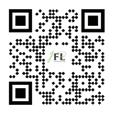
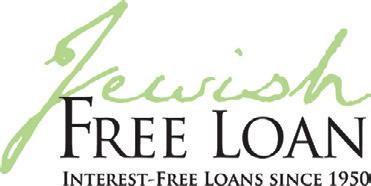
The U.S. relationship with Saudi Arabia has always been complicated. With the recent decision by the Saudiled OPEC Plus cartel to scale back oil supplies by up to two million barrels per day in order to bolster international oil pricing, the complicated relationship between the U.S. and Saudi Arabia became downright confrontational.
President Biden pledged last Tuesday to impose “consequences” on Saudi Arabia. In explaining what that meant, White House personnel spoke of a willingness to re-evaluate the entire U.S. relationship with the kingdom and an openness to considering retaliatory measures proposed by members of Congress and others, including the curbing of arms sales and permitting legal action against the OPEC Plus cartel.
Although the president was intentionally vague regarding the details of what would happen and when, he was direct and clear in his promise that “there will be consequences.”
Mr. Biden has reason to be upset. Last July, Biden made a much-publicized and highly criticized relationshipmending visit to Saudi Arabia despite a campaign promise to make the kingdom
an international “pariah” for the 2018 killing of the journalist Jamal Khashoggi.
Upon arrival In Riyadh Biden avoided an embrace or warm handshake with the 37-year-old de facto Saudi ruler, Crown
the visit, U.S. officials said they reached an understanding that Saudi Arabia would increase oil production in the fall and lower gasoline prices heading into the critical, upcoming midterm elections.
BIDEN’S CHALLENGE IS TO FORMULATE A SAUDI RESPONSE THAT SATISFIES HIS DOMESTIC POLITICAL NEEDS, IS CAREFUL NOT TO AGGRAVATE THE FRAGILE U.S. ECONOMY IN THE RUN-UP TO THE MIDTERM ELECTIONS AND PRESERVES INTERNATIONAL AGREEMENTS RELATING TO RUSSIA AND ELSEWHERE AROUND THE WORLD.
Prince Mohammed bin Salman (MBS), who the CIA says ordered the murder and dismemberment of Khashoggi and defaulted to a fist bump — which made critics even more upset, as it was viewed as the equivalent of a brotherly embrace. Nonetheless, following discussions during
Members of Congress are privy to a lot of nonpublic information. And because they regularly introduce legislation or participate in closed-door committee investigations or inquiries, many members become aware of information, or a new regulation being considered or a law in the making, that can have a significant impact upon various business sectors and many publicly traded companies. They learn these facts as part of their work, and they get that information long before members of the public.
The law prohibits insider trading, or the buying or selling of stock based upon nonpublic information. Members of Congress are subject to those laws just like everyone else. But it is often very difficult to prove awareness of or use of nonpublic information in connection with specific stock transactions.
Nonetheless, it is a clear conflict of interest for members of Congress to make personal investment decisions when they possess confidential information not known to the public. Yet, we regularly hear about senators or representatives, or
members of their immediate families, who have traded in stocks directly impacted by some aspect of congressional review or action. Those activities could be legal, or maybe not. But they unquestionably look bad. And it is reported that nearly
And now, MBS and the Saudis have done just the opposite.
To some, the move looks like an attempt by MBS to discredit Biden and influence internal U.S. politics for the benefit of Saudi friend Donald Trump and the Republican Party. To others,
it represents a tilt by Saudi Arabia and other Gulf states in favor of oil-producing Russia, by making it more difficult for western nations to implement a planned December price cap on Russian oil exports as part of a sanctions program in response to Russian aggression in Ukraine. Both are probably right.
And while the president is right to focus on meaningful consequences for Saudi betrayal, there is no need for an immediate response. Instead, Biden is properly working through numerous political, economic and military equipment-related options and considering their consequences. Virtually every proposed response will have clear intended consequences and many potential unintended ones. Moreover, it is still possible that the planned OPEC Plus production cut may not be quite as consequential as initially projected.
Biden’s challenge is to formulate a Saudi response that satisfies his domestic political needs, is careful not to aggravate the fragile U.S. economy in the run-up to the midterm elections and preserves international agreements relating to Russia and elsewhere around the world. There are a lot of moving parts. Don’t rush it.JN
Public trust in the federal government is at an all-time low. According to a recent Pew Research Center report, less than 30% of Democrats and less than 10% of Republicans trust government always or most of the time. But notwithstanding
PUBLIC TRUST IN THE FEDERAL GOVERNMENT IS AT AN ALL-TIME LOW. ACCORDING TO A RECENT PEW RESEARCH CENTER REPORT, LESS THAN 30% OF DEMOCRATS AND LESS THAN 10% OF REPUBLICANS TRUST GOVERNMENT ALWAYS OR MOST OF THE TIME.
20% of the 535 members of Congress — including members of leadership on both sides of the aisle — are buying and selling stocks where there may be a conflict of interest.
the deep political and cultural divides in our country, close to 80% of all voters — Democrats, Republicans and Independents — reportedly support banning members of Congress from
trading stocks. It is difficult to think of another current legislative issue on which such an overwhelming majority of American voters agree.
A number of bills have been introduced in the House and the Senate to address the congressional stock trading issue. Their common theme is the imposition of significant restrictions on the ability of congressional lawmakers and their immediate family members to profit from trading stocks and other securities, with serious penalties for violations. Although House Speaker Nancy Pelosi indicated a short while ago that a bill would be brought to the House floor for a vote, that plan was scrapped and consideration is now delayed until November, or even later.
Delay on the enactment of a congressional stock trading ban is a mistake. The longer congressional stock trading goes unchecked, the more the image of congressional ethics is diminished. We encourage prompt consideration and adoption of a ban on congressional stock trading. It is the right thing to do. JN
are a diverse community. The views expressed in the signed opinion columns and letters to the editor published in the Jewish News are those of the authors. They do not necessarily reflect the views of the officers and boards of the Jewish Community Foundation, Center for Jewish Philanthropy, Jewish Federation of Greater Phoenix, Mid-Atlantic Media or the staff of the Jewish News. Letters must respond to content published by the Jewish News and should be a maximum of 200 words. They may be edited for space and clarity. Unsigned letters will not be published. Letters and op-ed submissions should be sent to editor@jewishaz.com.
ANDREW SILOW-CARROLL | JTA

Mike Hale ruined “The Gilded Age” for me. After reading his New York Times pan of the HBO series about Old New York — he called it ”a muddled and slapdash portrait … that consistently dips into caricature” — I figured there were plenty of other series worth my time and attention.

He did not, however, ruin the Gilded Age for me — that is, the actual historic period, roughly from the end of the Civil War to the end of the 19th century. Like many others, I am fascinated by the hallmarks of an excessive age: the lavish homes of the “robber barons,” the stultifying cultural codes of the high society “Four Hundred,” the literary treatments by Edith Wharton, Henry James and Booth Tarkington.
I am also appalled by the misery of the period: the abject poverty of the inner city captured in Jacob Riis’ photographs, for example, and the racist terrorism and white supremacist laws that ended Reconstruction. As the historians Adam Mendelsohn and Jonathan Sarna describe the age, it was a “giddy era marked by freedom and disenfranchisement, excess and immiseration, opportunity and exclusion, confidence and anxiety.”
What I rarely thought about was how Jews fit into this picture. I knew of figures such as August Belmont and the Lehman Brothers, who amassed great fortunes but were treated as arrivistes by the WASP elite. I knew Jewish immigrants from Romania and the Russian empire had begun to pour into New York by the 1880s, but I always felt their story belonged to the 20th century (when, not so coincidentally, my own grandparents arrived). When I read a Wharton novel, my encounters with Jews were both rare and unhappy.
Mendelsohn and Sarna have set out to restore the place of Jews in the post-Civil War period. They have edited the massive, forthcoming anthology, “Yearning to Breathe Free: Jews in the Gilded Age” (Princeton University Library). The title is taken, of course, from the poem inscribed at the base of the Statue of Liberty and written by the Jewish poet Emma Lazarus, as fascinating a Gilded Age figure if there ever was one.
Earlier this month, the American Jewish Historical Society in Manhattan put on a day-long conference, “Jews in the Gilded Age,” with panels featuring many of the authors who contributed to the new book. It was a bit like Comic Con for history nerds, or at least for buffs like me
who regularly listen to New York history podcasts such as “The Bowery Boys” and its spinoff, Carl Raymond’s “The Gilded Gentleman.” Like the book, the symposium fleshed out a complicated era, especially in describing the seeds it planted for the American Jewish community as we know it today.
One big seed was the Jewish Theological Seminary of America, founded in 1886. Before it became the flagship of Conservative Judaism, JTS was an attempt
by traditionalists to thwart the rise of the intimidatingly liberal Reform Judaism. Only later did it emerge as the “third way” of American Judaism between Reform and Orthodoxy, as Sarna discussed on a panel that included Rabbi Meir Soloveitchik of New York’s Congregation Shearith Israel and the current chancellor of JTS, Shuly Rubin Schwartz.
The enormous economic expansion of
SEE GILDED AGE, PAGE 16
Turkey appointed a new ambassador to Israel in early October in what is a long overdue step towards establishing full diplomatic relations between the two nations. After having met with Turkey’s president, Recep Tayyip Erdoğan, just a few weeks ago, I am not surprised. Erdoan seemed sincere in his commitment to improving ties between Turkey, the United States and Israel, and I came away with ideas on how to build it.
Americans are divided in their assessments of Turkey and Erdoğan . Two views predominate — the optimistic and the pessimistic — and I’m sure Israelis fall into similar camps.
Michael Doran of the Hudson Institute represents the optimists. He argues that the current problems are temporary and fixable, so long as one sufficiently considers Turkey’s self-interests. Eventually, Turkey will align itself with Western nations because its objective circumstances require this.
Its economy is tied to the West, it fears Russian domination, and its population is oriented to Europe. Much of the departments of state and defense agree with
this analysis.
Daniel Pipes of the Middle East Forum represents the pessimists. He argues that Erdoğan’s Turkey has made a fundamental move away from the United States, NATO and the West as a whole. He views Erdogan as an ideologue intent on building an Islamist order — one in which Islamic law makes the rules and a caliph governs — and who sees non-Muslims as tactical allies at best. The U.S. Congress overwhelmingly subscribes to this viewpoint.
I know and respect both views but
subscribe to neither. Instead, I am seeking a way beyond them.
The problems are serious and growing. They include Turkey’s aggression against the U.S.-aligned Kurdish forces in Syria; incursions into Iraq; threats against the Republic of Cyprus; purchases of Russian weapons systems; conspiratorial rhetoric against Americans; rank antisemitism; a frightening turn away from democracy; and persistent propaganda that has turned many Turks against the United States.
There is also much good to report. Turkey provided drones to Ukraine that helped materially in its war effort against Russia, helped broker the deal to export Ukrainian food stuffs and supports Azerbaijan in its hostilities against Armenia, a Russian and Iranian ally.
Moreover, Turkey provided intelligence that prevented an Iranian assassination of visiting Israelis and expelled some Hamas operatives from Turkish territory as part of a general warming with Israel. This warming led to the resumption of full diplomatic ties, including the exchanging of ambassadors and the first visit to Turkey by an Israeli head of state in 15 years.
Drawing on my experience working in
the background to advance the Abraham Accords, I see a path to a fresh start by building on the positives in U.S.-TurkeyIsrael relations. These are not simple or quick, but they are possible.
After all, Ankara needs the United States and Israel to help it emerge from its economic downturn. Washington and Israel would benefit from Turkey for a host of security reasons.
First, Erdoğan must shift Turkey’s approach to the Palestinian-Israeli conflict. It should, in effect, become a partner in the Abraham Accords. As trade between Israel and Turkey is already flourishing, this should not be difficult. It does mean, among other steps, completely ending Turkey’s partnership with Hamas and ending the vile Judeophobia coming from Turkish politicians and media.
Second, the United States and Turkey need to get serious about working out a compromise in Syria, so that their troops and allies do not fight each other. Washington needs to provide guarantees about its Kurdish allies; Ankara needs to stop targeting them.
1:1-6:8
e’ve finally done it. We’ve made it through the fall holidays of Rosh Hashanah, Yom Kippur, Sukkot and Simchat Torah. And, though Jewish year 5783 began weeks ago, we’re now given yet another chance to begin again, with the start of the new cycle of Torah readings, with Parshah Bereishit, which consists of the first several chapters of the Book of Genesis.
New beginnings are a true gift in life. We start this year with a clean moral slate, having engaged in teshuva and acts of forgiveness. So too, we can begin anew intellectually and spiritually with a fresh start of Torah readings. As we emerge out of this long period of renewal, I’m struck by how one of the first things the Torah mentions is, rather than an annual period of resetting, a weekly one: Shabbat.
“The heaven and the earth were finished, and all their array,” it says at the beginning of Genesis chapter two, “On the seventh day, God finished the work that had been undertaken: God ceased on the seventh day from doing any of the
GILDED AGE
CONTINUED FROM PAGE 15
the age created enormous opportunities for Jews. Mendelsohn and a fellow panelist, Roger Horowitz of the Hagley Museum and Library, described the conditions that allowed even poor immigrants to get a leg up, from the exploding market for readymade clothing and cheap consumer goods to new industries like vaudeville, sheet music and the movies.
And as these “alrightniks” moved into the management class, Jewish workers began to organize in ways that anticipated the labor movement — and liberal voting patterns — of the 20th century. New wealth also liberated Jewish women from domestic labors; historians Pamela Nadell and Esther Shor discussed how Lazarus and the essayist Nina Morais Cohen used this freedom to defend their fellow Jews from burgeoning antisemitism.
That antisemitism was the inevitable backlash to Jewish success. Yeshiva University’s Jeffrey Gurock spoke about the founding of the American Jewish Historical Society itself, saying that one of its main functions was “apologetics” — that is, chronicling and sometime exaggerating the Jewish contributions to the founding of the United States in order to counter growing antisemitism and anti-
work. And God blessed the seventh day and declared it holy — having ceased on it from all the work of creation that God had done.”
WBy taking a step back one day a week — however we’re able to do it — we will naturally ask ourselves how we can improve our own character, how we can nurture our most cherished relationships and how we can be more impactful members of our communities. This first parshah, by introducing Shabbat, gives us not only a new beginning but continuous new beginnings.
In whatever way we embrace Shabbat, it should involve physical and spiritual rest and serve as a new beginning, where we ask ourselves the essential questions. Everything is not the same. Some people like to say history repeats itself but the Jewish wisdom I embrace is that everything is new, even when attached to the old. New beginnings are profoundly new. Everything around us is constantly changing: our bodies, the earth. We need to pause to realign and reattune ourselves to those evolutions.
In addition to God’s Divine renewal and our personal renewal, we can build our empathy for those we care about, seeing that they, too, are changing and embracing new beginnings. By taking time to breathe, we can see one another anew. We can truly see others for who they are
immigrant nativism. You recognize that insecure impulse today whenever a Jewish friend forwards a list of Jewish Nobel Prize-winners or the latest “proof” that Christopher Columbus was a Jew.
In a session on depictions of the Gilded Age in movies and television, Hale reiterated his criticism of the HBO series, but also noted the ways Jews in the series are “present by their absence.” The character George Russell is not identified as a Jew, but, as Hale and co-panelist Miriam Mora agreed, is “coded” Jewish by his attempt to break into old line New York society and the WASP characters’ attempts to keep him out. He is also one of the few characters in the series played by a Jewish actor, Morgan Spector (who also starred in HBO’s “The Plot Against America”).
For Mora, director of programs at the Center for Jewish History, a more honest portrayal of the Gilded Age was Joan Micklin Silver’s 1975 film “Hester Street.” Set on the Lower East Side in 1896, the independent film dared to depict “Americanization as a negative.” Its protagonists are a striving Jewish husband who detests the Old Country, and a wife who is trying to hold on to her traditions. No saccharine Hollywood depiction of the Gilded Age — like “Meet Me in St. Louis” or “Hello Dolly!” — would have dared acknowledge these costs.
and who they’re becoming.
Every parent of a student can see from semester to semester how their child is changing. Others can see change in their spouses. Rabbis can see it in their congregants. Congregants can see it in their rabbis. We’re all making transformations and it’s important that we recognize those changes in others. Through Shabbat, we can cultivate humility in how we see others.
In my opinion, the gift of Shabbat is a wonder because it’s not deducible from the natural world. The cycle of the year, with its seasons and of the lunar months, with the moon, are observable astronomically. But there’s nothing in nature that says there must be a seven-day week. And so, we’re given this treasure of weekly renewal.
We don’t need to wait an entire year to change again. Each week, Shabbat can be our Elul, our time of reflection and repentance — and havdalah, Saturday night, the new week, can be our miniature version of the high holidays.
“What does Shabbat have to do with repentance?” the mystic Rebbe Nachman of Breslov asked over 200 years ago. The answer he found was based on a midrash that Cain repented on Shabbat and he thus suggests: “When a person repents completely and repels evil entirely, and so has calm — this is the aspect of Shabbat.” Our Shabbat is a place of healing and
For many Jews today, the Gilded Age looks like a grainy black-and-white photograph, but instead of a lavish black-tie dinner at Delmonico’s it shows an ancestor standing in front of a store window advertising “full line groceries” and “jobbers of dry goods.”
Learning about the Jewish Gilded Age is like watching that photograph develop in a darkroom.
On the one hand the picture reveals the anxieties that still haunt us: antisemitism, internal divides, the high price of assimilation.
It’s also a portrait of success. As Benjamin
CONTINUED FROM PAGE 15
Third, a reassertion of the rule of law within Turkey would greatly improve American confidence and attitudes toward the Erdoğan government. The release from prison of two unjustly held men would do wonders to signal this return: Selahattin Demirtaş, former co-chair of the People’s Democratic Party, and Osman Kavala, a Turkish human-rights activist, should be freed immediately.
Steps like these will make it much easier for the already eager departments of state and defense to convince a very reluctant congress to recalibrate its approach towards Turkey.
resolution from our growth and repair each week.
New beginnings are not just for a new home, a new job, starting college. They are built into the soul. We learn from Parshah Bereishit that even God wanted a new beginning. God could have saved this concept for the Ten Commandments. But instead, God didn’t just tell us to keep Shabbat. God engaged in Shabbat and was the first one to do so. We, then, are called to emulate God in being creative agents of renewal.
“Let me fall and my new self will catch me,” the Baal Shem Tov taught. We need courage to shed our old skin, to let briefly go before finding the courage to again take on the challenges of life. The way to do this, we learn in our parshah, is through Shabbat. JN
Steiner writes in “Yearning to Breathe Free,” “Hard work, traditions of mutual aid, respect for education, centuries of diaspora experience, structural economic forces tied to capitalism and the fact that most Jews had white skins in a society where Blacks were the principal out-group — all enabled Jews by the middle of the twentieth century to become one of America’s most successful minority groups.” JN
The views and opinions expressed in this article are those of the author and do not necessarily reflect the views of JTA or its parent company, 70 Faces Media.
I have seen for myself that President Erdoğan is a strong and proud Turkish leader. He acknowledged to me his belief that Turkey’s best interests require him to take steps that bring peace, stability and wealth to his country — and that stronger ties with the United States and Israel would be instrumental in this effort. JN
Harley Lippman is the CEO of Genesis10, a top 20 U.S. IT consulting company. He serves as a member of the U.S. Commission for the Preservation of America’s Heritage, on the Dean’s Advisory Board at Columbia University’s Graduate School of International and Public Affairs, and as a board member on USAID’s Nita M. Lowey Middle East Partnership for Peace.

 ANDREW LAPIN | JTA
ANDREW LAPIN | JTA
When Rabbi Rachel Timoner’s dad Eli told his family of his decision to end his life, Rachel knew what would soon be asked of her: to officiate his funeral, something he had told her he wanted since she became ordained.
This presented a challenge for Rachel, the senior rabbi at Brooklyn’s Congregation Beth Elohim. Being her father’s rabbi “wasn’t what I wanted,” she says in the new documentary, “Last Flight Home,” which chronicles Eli’s final days from the perspective of his family. The film, directed by Rachel’s sister Ondi Timoner, is a raw, intimate document of the realities of endof-life care, as well as a meditation on the ways Jewish law encourages setting one’s affairs in order before the moment of death.
A former airline executive and prolific fundraiser for Miami’s Jewish federation, Eli Timoner was felled by a stroke in his 50s and spent 40 years of his life with a physical disability — the first in a series of painful steps that led to him losing much of his wealth and stature in the business and philanthropy world. (He suffered his stroke a few months after a plane operated by his airline, Air Florida, crashed into the Potomac River, killing 78 people; the film doesn’t discuss the crash, but January, one week before its premiere at the Sundance Film Festival, marked 40 years since it happened.)
When Eli’s health began to get markedly worse in 2020, he began to insist that he end his own life and began the legal process by which he could acquire the lethal medication in California.
“He made a sudden decision, and he was very adamant about it,” Ondi Timoner told the Jewish Telegraphic Agency. “He would go from calling one of us to the next, to the next: ‘Please, help me die. If you love me, help me die.’ He was saying the Shema to Rachel.”
Ondi’s first instinct, she said, was to grab a camera. As a prolific director, her documentaries (including “We Live In Public” and “Coming Clean”) have won awards at the Sundance Film Festival. But at first, she didn’t think she was filming anything more than a memorial video, and only wanted “to bottle up and capture his personality, his voice, for the family.” So she filmed gatherings even as she grieved along with her subjects (including her dutiful mother Lisa and apprehensive brother David), who often pop out from behind the camera to share a tender moment — or even attempt to “direct” a scene.
It was only in the months after Eli’s death, as Ondi was editing the footage and seeing the gut reaction her friends and family had to watching someone in pain make the decision to end his own life, that she decided to try to turn it into a feature film.
The film chronicles the two weeks in early 2021 before Eli takes the “goodbye powder,” as a series of doctors sign off on his death and he bids farewell to his family and friends from the comfort of his Pasadena home, where he is on bedrest. It also depicts the “T-team,” as the Timoners call themselves, helping Eli go through the traditional Jewish end-of-life ritual of viddui, or seeking forgiveness for one’s sins before death. Later, after his death, we also see them performing the act of tahara, or cleaning his body for burial.
“I’m more of just a generally spiritual person, but it was these rituals. They were like touchstones for us,” Ondi said.
During the process, Rachel finds herself less and less willing to be her father’s rabbi. “As he’s getting closer and closer to death, I am more and more clear that I am his daughter,” she says in the film.
But there was a happy coda after all the grief, Ondi said. Six months after Eli’s death, the “T-team” reunited at the Telluride Film Festival to screen the documentary — where Rachel, in her capacity as rabbi, officiated Ondi’s wedding to her partner, Morgan Doctor, who composed the music in the film.
“It was the most perfect hour of our lives,” Ondi said. She recalled how Eli had blessed their union on camera, on his deathbed (a moment that made it into the film). Now they were getting married at an event celebrating his life, under a makeshift
huppah that included a tablecloth from Eli’s mother, with the entire family present once again.
“If you think about the film, and you think about what Dad says to me the night before he dies: I say, ‘So wasn’t it important to say goodbye to all these people?’ And he says, ‘Yes, but look forward. Don’t look back,’” Ondi recalled. “And I feel like that was the energy that this occasion brought.”
For a Jewish family that was never particularly spiritual growing up, Ondi said, their patriarch dying brought everyone, including Eli, closer to Judaism.
That was true even though “Last Flight Home” captures the Timoners helping someone end his life, which is emphatically discouraged by Jewish law and tradition. The Central Conference of American Rabbis, the rabbinical arm of the Reform movement that includes Rachel Timoner, announced in August that it would support Canada’s laws permitting medical aid in dying. It said it would not support California’s law, which the Timoners relied on, because America’s lack of universal healthcare “means that we cannot be certain that an individual in the U.S. considering medical assistance in dying is not being affected by their own or their family’s financial situation, or by obstacles to obtaining necessary and appropriate treatment.”
Though Rachel Timoner is a prominent activist on a range of social issues, she
didn’t anticipate end-of-life care being one of them. But knowing how the image of a rabbi paying for her father’s life-ending drugs on film would seem to the Jewish community, she wrote an op-ed in the Forward prior to the movie’s release explaining her decision.
“I do not wish to create controversy on this issue, and I would not have chosen to make this film,” Rachel Timoner wrote. “I would not have chosen for my father’s death to be viewed by the public at all, and I would not have chosen to champion this issue. But I have cared for others who desperately wished for this choice at the end of their lives, and I think it might be time for the Jewish people to reconsider our views on this important matter.”
Now there’s a good chance “Last Flight Home,” and the Timoners’ story, will become a Jewish face of the rightto-die debate. Death With Dignity, an organization that advocates for policies allowing medically aided death, reached out to Ondi Timoner after the film’s screening to ask if they can use it in their own materials.
It’s a prospect she welcomes, she said, adding, “It’s a dream for me as an artist, and as a daughter, that my father’s suffering could come to this kind of healing for people.” JN
 AJ FROST | CONTRIBUTING WRITER
AJ FROST | CONTRIBUTING WRITER
On Oct. 1, the Scottsdale Museum of Contemporary Art (SMoCA) opened its latest exhibition: “In Our Time: Selections from the Singer Collection.” A snapshot of 40 paintings by 27 artists, “In Our Time” is a moving, high-concept and reflective showcase for artists from the African Diaspora. The pieces, ranging from surrealistic melodramas of color to photorealistic portraits with elusive narratives, display SMoCa’s commitment to culturally enriching programming. But there is more to the exhibition, as “In Our Time” also highlights a local Jewish art collector’s curation of pieces that seek to go beyond the ordinary.
Iris and Adam C. Singer are the eponymous collectors whose paintings make up “In Our Time”. It took them 16 years to amass the pieces featured in the exhibition. Adam, who comes from a “long line of collectors” remarked that: “My grandfather and father collected art, but my mother, aunt and uncles and even my brother collected various genres… I feel as though collecting has always been in my blood.”
The collection taking up space on
SMoCa’s gallery walls is foreign yet familiar. That might be because these paintings and collages are, in a single word, stunning. From the images available to preview, the sheer breadth of the collection’s thematic elements is reflective of the collectors’ desire — conscious or not — to create a mirror to our own community, perhaps even to make us a little uncomfortable. And while there is so much hidden beauty found within these pieces, what is most affecting are the paintings where the subject looks back at the viewer, as if inviting them to comment on the nature of predominately Black figures in an institutional space where Black voices are not often heard.
“I do hope the public will enjoy the exhibition of our collection of Black and African diaspora artists,” shared Singer. “I don’t believe Iris and I thought it through when we first began our conversation with the SMoCA… you do feel vulnerable and a bit on display, just like the art. However, given the times we are in, we felt it was very relevant.”
Artists whose work appears in “In Our Time” include: Kehinde Wiley, Amoako Boafo, Chris Ofili, and Tunji Adeniyi-Jones.
According to Jennifer McCabe, director
Join people of faith as we weave unity with threads of justice! November 3rd, 2022 · 9 - 11:30 am. AFN’s Annual Gathering is our yearly gathering of people of faith for relationship building, educational and resource sharing, celebrations, and planning for the coming year.

www.arizonafaithnetwork.org
and chief curator at SMoCA, a major inspiration for “In Our Time” were the Singers themselves. “We see the works from the Singer collection as part of a greater historical view of painting and how Black artists are often neglected from those histories. In the end, we have a snapshot of the moment through the lens of 27 artists from a wide range of places internationally.”
“For us, art can invoke many sensations. Even the same work can invoke different emotions at different times,” said Singer.
At the behest of the museum, the exhibition was organized and guestcurated by Allison Glenn, currently the senior curator at Public Art Fund in New York City. Glenn’s most recent exhibit has been met with critical acclaim for “Promise, Witness, Remembrance” an exhibition that reflected on the life of Breonna Taylor.
In press materials prepared by SMoCA, the museum breaks down the different aspects of the exhibition. There are four distinct sections: The first begins with portraits that look at how the presence of the body is an affirmation in-and-of itself. Second is the mythologies section, where certain artists rely on painterly approaches to convey ideas and narratives rooted in “parafiction.” The third section explores the tensions between historic figuration and abstraction. The exhibition concludes with a gathering of works of abstract compositions that subvert and question preconceived realities.
“I think the beauty and scale of the
works will elicit a sense of awe and wonder
And although the Singers are members of Temple Solel in Paradise Valley, the exhibition itself doesn’t have any overt Jewishness to it. Singer doesn’t believe that ”there is a direct connection to our Jewish heritage and the works on display in the exhibition. However, my understanding is that many European Jews during the Holocaust were major art collectors. I believe this tradition is still prevalent today.”
No matter who attends the exhibition, the overarching message could be understood as a universal one: connection. Additionally, the opportunity for community members of all backgrounds to come together to bask in the meaningful dialogue that art engenders is a powerful one in an era where everything feels divisive.
“We welcome everyone to come to the museum and enjoy the exhibition,” said Singer. “Iris and I are grateful for the opportunity to participate in this event. There is a fantastic representation of both domestic and globally recognized artists on display.
“We hope everyone who comes learns something new and simply has a wonderful time.” JN
“In Our Time: Selections from the Singer Collection” is open through Feb. 12. For more information, visit smoca.org.
AJ Frost is a writer/editor based in Phoenix.



Episode three of “The Patient,” the well-received psychological thriller series on Hulu about a serial killer who kidnaps his therapist, involves a flashback to an Orthodox wedding.
Ezra, son of the protagonist therapist Alan Strauss and Reform cantor Beth Strauss, is marrying an Orthodox woman named Chava. Guitar in hand, Beth sings “Dodi Li,” a traditional Jewish wedding song, knowing that women are not allowed to sing in the presence of men in this Orthodox community. As she performs, some men get up to leave. Ezra and his bride stay but look uncomfortable.
The moment gets at the tension that Ezra’s transition out of the Reform lifestyle of his upbringing and into Orthodoxy has wrought within the Strauss family. But the scene was not originally written this way.
Although the show’s creators Joel Fields and Joe Weisberg are both Jewish, they weren’t aware of the Orthodox prohibition against women singing in front of men and had first written the moment as a nice memory of a mother singing at her son’s wedding. The show’s consultant, Rabbi Menachem Hecht, a teacher at the Modern Orthodox YULA yeshiva high school in Los Angeles, informed the duo of the rule — which thrilled them because they said it made the scene more interesting and complicated.
The scene and the consultation behind it points to the level of Jewishness that Fields and Weisberg wove into the fabric of “The Patient,” which debuted on Aug. 30 and is still releasing weekly episodes on FX on Hulu through the finale on Oct. 25. The pair, who also created the acclaimed Cold War spy drama “The Americans,” have spoken at length about their Jewish backgrounds — Fields as the son of a Reform rabbi and Weisberg as the son of Reform parents who attended a Conservative Synagogue.
In “The Patient,” Alan — played by the non-Jewish Steve Carell — is a widower, having lost his wife Beth (Laura Niemi) to cancer. She was a cantor at a Reform synagogue and their son Ezra (Andrew Leeds) turned to Orthodox Judaism in college, a path that his parents didn’t understand. A deranged new patient named Sam (Domhnall Gleeson) kidnaps Alan in an attempt to cure his own murderous impulses.

“I think on some level consciously and on some level unconsciously, we were dealing with general and specific themes of intolerance, and it seemed interesting to explore the challenges of differences that from the outside might seem relatively small but from the inside seem like a chasm,” Fields told the Jewish Telegraphic Agency.
Fields and Weisberg don’t spend screen
time educating the viewer on the intricacies of Orthodox practice that show up in the series.
“We are not believers in exposition. We don’t want to spell it out. We used to joke on ‘The Americans’ that ‘who could understand this? We barely understand this.’ Nobody’s going to understand it, but as long as they feel it, that’s what’s good,” Weisberg said.
Fields and Weisberg worked with the production design and set decorating team to ensure that all the details were right, such as paper plates for Ezra’s family, who could not eat on the dishes that are normally used to serve unkosher food.
Reform Rabbi Robyn Frisch, of Temple Menorah Keneseth Chai in Philadelphia, told the Jewish Telegraphic Agency that when her son turned to Orthodox Judaism at age 16, she felt rejected at first.

“We raised our kids, we thought, with this meaningful Jewish life. He never said it straight out, but there clearly things we did that were not what he wanted,” Frisch said.
She said her work with interfaith couples as the director of the Rukin Rabbinic Fellowship for 18Doors — a national nonprofit organization that helps interfaith couples and families — helped her eventually accept her son’s choices. She added that she wants to start a nonprofit like 18Doors for families with children who become Orthodox, to help them through the challenges and blessings of such a change.
“To be a Jew in America is to know a bunch of people who have gone through similar iterations of this sort of family dynamics,” Fields said.
In addition to the family divides, Judaism plays an important role in other aspects of the story. In one episode, Alan dreams of himself in the barracks of Auschwitz.
“It seemed obvious to us that a Jewish person locked in a guy’s basement facing death as Alan Strauss was would associate with that imagery,” said Weisberg. “We grew up with that imagery and that history really infused in our lives, in synagogue, in Sunday school, in our regular schools, and at home. Anybody tries to kill me, I’m going there.”
As Alan tries to teach Sam about empathy, so that he can start thinking of his victims as people and consider what their families need, he talks about Jewish rituals associated with death, including the Mourner’s Kaddish.
“I remember my dad telling me about the Kaddish when I was very young. It’s not like he sat down and explained prayers to me, but I remember him saying that it was a prayer that began as students giving thanks for their teachers, and then it became something that we said to give thanks for everybody, for those who meant something to us in life,” said Fields. “And it was a prayer of thanks, not a prayer of
sounded great when he was saying it, because in any American congregation, it’s not like there’s the right way,” Weisberg said. “Every Jew is saying it differently and pronouncing all the words differently, so he sounded a lot like me and everybody else I knew.”
When the pair first reached out to Hecht, he assumed that the main plot of the show revolved around Jewish themes.
“They put so much thought into it and so many resources into this Orthodox story, and I figured that was the show. And then when I finally saw the script I was like, ‘Wait,
this isn’t the show at all, this is like a minuteson,’” Hecht said. “I just thought this speaks to who these folks are who are putting this together and the degree to which they’re approaching this with a sense of respect and with seriousness and with rigor.”
Fields said it was a product of how deep their Jewish identities run.
“It’s been really meaningful to be able to tell a story that we hope is relatable to everybody, that we hope ultimately is about everyone’s common humanity and common experience, but is expressed through particular character dynamics that are just deep inside us culturally,” he said. “One doesn’t often get the chance to do that, so it means a lot.” JN

5-7 p.m. Join the Center for Jewish Philanthropy of Greater Phoenix for an evening to meet, reconnect and spend time with old friends and new. Featuring guest speaker Amy Hirshberg Lederman, award-winning author and nationally syndicated columnist on Jewish life. Cocktails and heavy hors d’oeuvres will be served. Dietary laws observed. Location is at a private residence in Paradise Valley (address to be provided upon registration). For more information, visit jcfphoenix.regfox.com/ power-of-the-purse-wip-fall-2022.
SUNDAY, OCT. 23
J in the Community: In the Beginning: 10-11:30 a.m. Join the Early Learning Center at the East Valley JCC at a Chandler park for a creation-themed program with crafts, snacks and story time. Location provided after registration. Free. evjcc.org/creation.
Genetic Education and Screening Event: 1-4 p.m. Join Minkoff Center for Jewish Genetics at Beth El Congregation, 1118 W. Glendale Ave., Phoenix for a 30-minute genetics lecture followed by individual genetic counseling sessions for both prenatal disorders and hereditary cancer. Free. For more information, visit jewishgeneticsaz.org.
MONDAY, OCT. 24
3GAZ Stories Live: 7-9 p.m. Join the Valley of the Sun Jewish Community Center, 12701 N. Scottsdale Road, Scottsdale for a presentation featuring third-generation Holocaust descendants: Adena Bernstein Astrowsky, Jennifer Sosnow and Jennifer Blohm. In-person and online via Zoom. For more information, visit vosjcc.org.
TUESDAY, OCT. 25
Educators’ Conference on the Holocaust and Genocide: 10 a.m.-4 p.m. Join Arizona State University for The Murray and Sabina Zemel, z”l, Educators’ Conference on the Holocaust and Genocide that aids Arizona teachers in building programs, developing curricula and sharing best practices in educating on the Holocaust and other genocides. The conference is free and open to the public. The first 50 teachers enrolling will also receive funding to cover substitute teachers for the day of the conference. For more information, visit shprs.asu.edu/ HolocaustEducators.
THURSDAY, OCT. 27
Experience Interfaith: 5:30 p.m. Join Arizona Interfaith Movement at Arizona Heritage Center, 1300 N. College Ave., Tempe for an evening of talking with and learning from practitioners of different
faiths. This helps build understanding, compassion and respect in neighborhoods and in communities. Free event but pre-registration is required. For more information, visit interfaithmovement.com/ experience-interfaith.
FRIDAY, OCT. 28-SUNDAY OCT. 30
Camp Stein New Camper Weekend!: Join Camp Daisy and Harry Stein in Prescott for their Fall New Camper Weekend. Open to any first-time camper in 1st–6th grade. This is an opportunity to get a taste of camp before the summer. For more information, visit campstein.org.
SUNDAYS
BAGELS: 9-11 a.m. Join the Valley of the Sun Jewish Community Center, 12701 N. Scottsdale Rd., Scottsdale, for Bagels And Gabbing Every Last Sunday of the month in-person. Grab a bagel and a cup of coffee and enjoy some time with your friends and make new ones. You must register to attend. Bagels and coffee will be provided. Cost: Free for members, $5 for guests. For more information and to register, visit apm. activecommunities.com/valleyofthesunjcc/ Activity_Search/1787.
MONDAYS
Mahjong: 10 a.m.-12:30 p.m. Join the East Valley Jewish Community Center, 908 N. Alma School Rd., Chandler in-person for mahjong. This program is intended for players with prior experience and for those who have received the COVID-19 vaccination. Masks will be required. Cost: Free. For more information and to register, visit evjcc.org/mahjong. For further questions, call the EVJCC at 480-897-0588.
THURSDAYS
Storytime at Modern Milk: 9:30 a.m. Join Modern Milk, 13802 N. Scottsdale Rd, #163, Scottsdale for an in-person storytime for babies, toddlers and preschoolers. We will integrate favorite children’s books and songs while giving parents new ideas for play. Cost: $5. For more information and to register, visit modernmilk.com/after-baby.
SUNDAYS
Soul Study: 7:15 a.m. An online class exploring the secrets of the Tanya and Jewish mysticism, taught by Rabbi Pinchas Allouche. Cost: Free.
Chassidus Class: 9 a.m. Learn about the Chasidic movement with Rabbi Yossi Friedman. Cost: Free. For more information, visit chabadaz.com.
Jewish War Veterans Post 210: 10 a.m. Any active duty service member or veteran is welcome to join monthly meetings, now virtual, every third Sunday. Cost: Free. For more information, email Michael Chambers at c365michael@yahoo.com.
Anxiety in the Modern World: 6 p.m. Learn the secrets of the Torah for living stressfree in the current environment in a virtual class with Rabbi Boruch, with Chabad of Oro Valley. Cost: Free. Tune in using this link: zoom.us/j/736434666. For more information, visit chabadaz.com.
MONDAYS
Ethics of Our Fathers: 7 p.m. Learn with Rabbi Zalman Levertov online. Tune in at: bit.ly/2Y0wdgv. Cost: Free. For more information, visit chabadaz.com.
Quotable Quotes by our Sages: 7 p.m. Learn with Rabbi Shlomy Levertov online. Tune in at: JewishParadiseValley.com/ class. Cost: Free. For more information, visit chabadaz.com.
Partners in Torah: 7:30 p.m. Join a growing group of inspired learners with Project Inspire. Cost: Free. Tune in at: us04web. zoom.us/j/3940479736#success, password is 613. For more information, email Robin Meyerson at robin@projectinspireaz.com.
Learning to Trust in God: 7:30 p.m. Learn with Rabbi Yossi Friedman online. Tune in at: ChabadAZ.com/LiveClass. Cost: Free. For more information, visit chabadaz.com.
Torah & Tea: 7:30 p.m. Learn with Rabbi Yossie Shemtov online. Cost: Free. For more information, visit Facebook.com/ ChabadTucson.
TUESDAYS
Let’s Knit: 1:30-3:30 p.m. Share the pleasure of knitting, crocheting, etc. and help others with a project or pattern. Can’t knit? We can teach you! Every level welcome. We will be sitting outside at the Ina Levine Jewish Community Campus and social distancing. Cost: Free. For more information, visit vosjcc.org.
Maintaining an Upbeat Attitude: 7 p.m. A class exclusively for people in their 20s and 30s, learn how Jewish Mysticism can help with your attitude with Rabbi Shlomy Levertov online. Cost: Free. Tune in at: JewishParadiseValley.com/YJPclass. For more information, visit chabadaz.com.
WEDNESDAYS
History of the Jews: 11:00 a.m. Learn the Jewish journey from Genesis to Moshiach online with Rabbi Ephraim Zimmerman. Cost: Free. Tune in here: zoom. us/j/736434666. For more information, visit chabadaz.com.
Torah Study with Temple Beth Shalom of the West Valley: 11 a.m.-noon. TBS of the West Valley’s weekly virtual study group explores that week’s portion and studies different perspectives and debates the merits of various arguments. Intended for adults, Torah study is open to students of all levels. The goal is to achieve an understanding of what the text is and what it can teach us in the contemporary world. For more information, contact the TBS office at (623) 977-3240.
Happiness Hour: 11:30 a.m. An online class taught by Rabbi Pinchas Allouche that delves into texts and references culled from our traditions to address a relevant topic and draw uplifting life lessons from it. For more information or to join, visit cbtvirtualworld.com.
Torah Study with Chabad: Noon. Take a weekly journey to the soul of Torah online with Rabbi Yossi Levertov. Cost: Free. For more information, visit chabadaz.com.
Lunch & Learn: 12:15 PM. Grab some food and learn online with Rabbi Yehuda Ceitlin. Cost: Free. Tune in on Zoom by emailing info@ChabadTucson.com. For more information, visit ChabadTucson.com.
Knit a Mitzvah: 1-30 p.m. On the second and fourth Wednesdays of the month, check in with fellow knitters who are making items to donate as part of this Brandeis National Committee Phoenix chapter study group. For more information, contact Ronee Siegel at ronees@aol.com.
JACS: 7:30-8:30 p.m. Virtual support group for Jewish alcoholics, addicts and their friends and family on the first and third Wednesdays of the month. Cost: Free. For more information, email jacsarizona@gmail. com or call 602-692-1004.
Words & Whiskey: 8:30 p.m. Join a free weekly, virtual learning session for men. To RSVP, email rmollenaz@gmail.com or call/ text 310-709-3901.
THURSDAYS
Ladies Torah & Tea: 10:30 a.m. Learn about the women of the Torah with Mrs. Leah Levertov online. Cost: Free. Tune in at: ourjewishcenter.com/virtual. For more information, visit chabadaz.com.
Talmud - Maakos: 11 a.m. Learn with Rabbi Shlomy Levertov. Cost: Free. Tune in at: JewishParadiseValley.com/YJPclass. For more information, visit chabadaz.com.
Teen Discussions: 7-8:30 p.m. Learn with Rabbi Tzvi Rimler online. Cost: Free. Tune in at cteen.clickmeeting.com/east-valley. For more information, visit chabadaz.com.
SATURDAYS
Saturday Mindfulness Gatherings: 9:30 a.m. Hosted by Hospice of the Valley. To join by phone, dial 1-253-215-8782, meeting ID 486 920 2119#. To get the Zoom link or for more information, contact Gill Hamilton at ghamilton@hov.org or 602-748-3692.

Book Discussion: 1:30-2:30 p.m. Join Or Adam Congregation for Humanistic Judaism on the third Saturday of every month for a virtual book discussion. For more information and to register, contact oradaminfo@gmail.com.
Shabbat
FRIDAYS
In-person services: Congregation Beth Israel is holding services in the Goldsmith Sanctuary limited to 100 people, excluding clergy and staff. Members and guests must be fully vaccinated (two weeks since your last vaccination) and wear a mask. Children may attend and must be able to wear a mask for the duration of the service. Participants must pre-register by Thursday at 5 p.m. Priority will be given to members first and then guests. If there are more requests than available seats a lottery system will be used. To make your reservation, contact Gail Gilmartin at 480951-0323 or at ggilmartin@cbiaz.org.
In-person services: Temple Chai is holding Friday evening (5:30 p.m. nosh, 6:15 p.m. service) and Shabbat morning (varying dates and times). For more information, contact Sheana Abrams at (602) 971-1234 or sabrams@templechai.com.
In-person services: Congregation Or Tzion is holding Friday evening (6 p.m)
and Shabbat morning (9:30 a.m.) services indoors. Services are also live streamed at otaz.org/livestream. For more information about services, events and membership, visit congregationortzion.org or call 480-342-8858.
Baby & Me Shabbat: 9:30 a.m. on the first Friday of the month. Join the Bureau of Jewish Education of Greater Phoenix for this free program for parents and their little ones to welcome Shabbat. For more information, visit bjephoenix.org.

Tot Shabbat in the Park: 9:30 a.m. Free totShabbat every Friday morning at Cactus Park. Shabbat music, toys and a meaningful pre-school Shabbat experience. Is it your child’s birthday? Sponsor a Shabbat for $36.00. For more information and to register, visit playdatesbydesign.com/ upcoming-classes.
Shabbat at Beth El: 11-11:45 a.m. Celebrate Shabbat with songs, blessings and inspirational teachings. Rabbi Stein Kokin from Beth El Congregation will lead us the first Friday of every month. Special guests will be welcoming Shabbat during the remainder of the month. For more information or to join, visit bethelphoenix. com.
Welcome Shabbat: 11-11:45 a.m. Join the JFCS Virtual Center for Senior Enrichment each Friday for a soothing and inspiring program to welcome Shabbat. Each week a different guest host will lead the program with song and celebration. Cost: Free. For more information, visit jfcsaz.org/cse.
Erev Shabbat Service: 5:30 p.m. Rabbi Alicia Magal will lead a service livestreamed for members of the Jewish Community of Sedona and the Verde Valley. Cost: Free. For more information and to obtain the Zoom link, visit jcsvv.org/contact.

Pre-Shabbat Kiddush Club: 6 p.m. Say kiddush with Rabbi Mendy Levertov online. Cost: Free. Tune in here: ourjewishcenter. com/virtual. For more information, visit chabadaz.com.
Kabbalat Shabbat and/or Shabbat morning service: 6:30 p.m. on various Friday nights and 10:00 a.m. on various Saturday mornings. Congregation Kehillah invites you to join Rabbi Bonnie Sharfman and cantorial soloists Erica Erman and Scott Leader either in person or via Zoom. For dates, visit congregationkehillah.org/event/. Register by emailing info@congregationkehillah.org. For safety reasons, please register ahead of time.
In-person Third Friday Shabbat: 7-8 p.m. The Desert Foothills Jewish Community Association hosts a Shabbat service followed by a program. Contact Andrea at 480-664-8847 for more information.
November 4
Ideas and resources for families planning celebrations or B’nai Mitzvot. Don’t miss the opportunity to showcase your products and services.
November 4 & 18
December 2 & 16 Educate readers on how nonprofits make a difference in our community and reach contributors ready to make year-end giving choices.
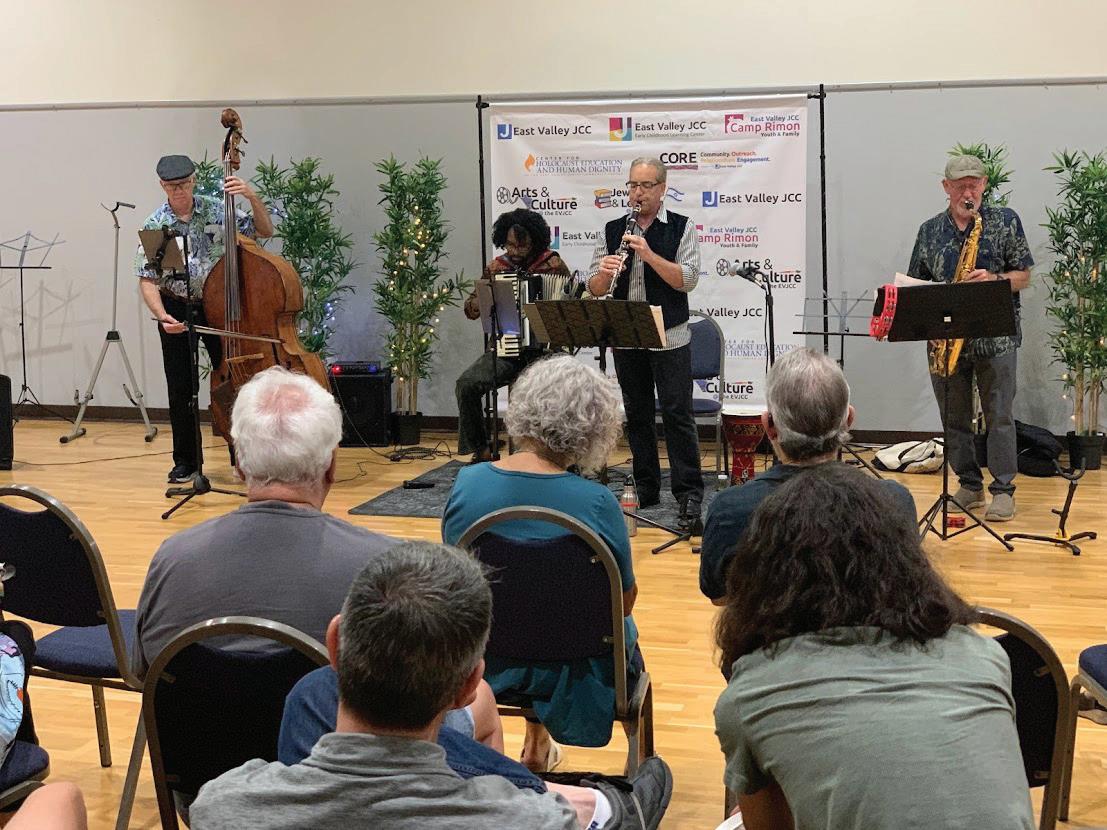
Shira Tanzer, student at the Walter Cronkite School of Journalism and Mass Communication at Arizona State University and former contributor to Jewish News, had the honor of speaking as a Cronkite representative at the Arizona Broadcasters Association’s Annual Luncheon last month.




CALENDAR
CONTINUED FROM PAGE 21
MONDAYS
Brain Fitness: 1-2 p.m. Join Toby Lazarus in this virtual brain fitness class, which works to engage the brain in innovative ways in a variety of cognitive areas and can help increase mental acuity. Word play, puzzles, memory games and problemsolving activities are employed to enhance your brain power. Cost: Free. For more information and to register, visit jfcsaz. org/events/. Contact CSE Director Jennifer Brauner at seniorcenter@jfcsaz.org or 602343-0192 with questions.
TUESDAYS
Movie Discussion Group: 11 a.m. Join Smile on Seniors on the third Tuesday of every month hosted by Issy Lifshitz. Cost: Free. For full details and the movie of the month visit sosaz.org/virtual or email Rabbi Levi Levertov at levi@sosaz.org.
WEDNESDAYS
Chair Yoga with Zoe: 11-11:45 a.m. Grab a chair and sit down for a 45-minute chair yoga class with Zoe! Yoga is beneficial to mind, body and spirit. Prior to class, please let Zoe know if you have any limitations in order for exercises to be modified. No prior yoga experience required. Presented by JFCS Center for
Senior Enrichment. Cost: Free. For more information, visit jfcsaz.org/cse.
THURSDAYS

In the Kitchen with Benita: 12:30 p.m. Join Smile on Seniors on the fourth Thursday of every month for some delicious cooking or baking fun! Cost: Free. For full details visit sosaz.org/virtual or email Rabbi Levi Levertov at levi@sosaz.org.
FRIDAYS
Welcome Shabbat: 11-11:45 a.m. Celebrate Shabbat virtually with songs, blessings and inspirational teachings. For more information and to register, visit jfcsaz. org/events/. Contact CSE Director Jennifer Brauner at seniorcenter@jfcsaz.org or 602343-0192 with questions.
Adult Chair Ballet Class: Noon-12:45 p.m. Join Jennifer Cafarella and Elaine Seretis from Ballet Theatre of Phoenix as they teach a ballet class that will help improve strength, flexibility, movement and balance. No prior dance experience required. Presented by the JFCS Virtual Center for Senior Enrichment. For more information, visit jfcsaz.org/cse.
Musical Friday: 12:30 p.m. Join Smile on Seniors on the first Friday of every month for a musical presentation. Cost: Free. For full details visit sosaz.org/virtual or email Rabbi Levi Levertov at levi@sosaz.org.
MATTHEW REUBEN KRAVETS
Matthew Reuben Kravets will become a bar mitzvah on Nov. 5, 2022 at Temple Solel.
He is the son of Andrea and Dan Kravets of Paradise Valley and brother of Benjamin Kravets.
Grandparents are Wendy and Howard Malley of Scottsdale; Marybeth Kravets of Chicago, Ill. and Alan Kravets of Chicago, Ill.
For his mitzvah project, Matthew is collecting bicycles for refugees through the Welcome to America Project.

A student at New Way Academy, Matthew enjoys skiing, hiking, gaming and travel.
Lisette Albaranes of Scottsdale died Oct. 5, 2022. She was 98. Lisette is survived by sisters Claire Alsay and Etty Marcourakis; daughters Ilana Lothman and Dorit Herlinger; four grandchildren and two great-grandchildren. She was preceded in death by her husband, Yehoshua Albaranes. Services were held on Oct. 7, 2022, at Mt. Sinai Cemetery, o ciated by Rabbi Pinchas Allouche. Donations in her name can be made to the Red Cross for Hurricane Ian and Congregation Beth Te llah.
Elizabeth “Betsy” Raz of Phoenix died Oct. 16, 2022. She was 58. Elizabeth was born in Cleveland, Ohio.


Elizabeth is survived by her daughter, Nicole (Nikki) Raz; son, Oren Raz; brothers Je and Marc Zeller; and two grandchildren. She was preceded in death by her parents Alene Cole and Jules Zaller.

LEILA JOYCE BOGAN, age 93, of Scottsdale, died October 5, 2022. Leila was born in Albany, N.Y. to Mary and Benjamin Drezner. She married Arnold Bogan on April 1, 1951, and lovingly referred to herself and Arnold as April Fools. They settled in suburban Philadelphia where they raised their two children, Rick and Sheila. Leila and Arnold came to Scottsdale 50 years ago. They embraced the Southwest and enjoyed traveling throughout the region and overseas.
Leila was a devoted wife, mother and grandmother, a committed community volunteer, and a lover of nature, the arts, education and Judaism. She enjoyed being a museum docent and was an avid reader joining many book clubs and study groups. She had a creative eye for design and always shared her unique perspectives on the world.
Leila is survived by her son, Rick Bogan of Scottsdale; daughter, Sheila Solomon Rudd of Tampa, Fla.; two grandchildren Beryl Jackowitz (Michael) and Shayna Zachary (Ross), and five great-grandchildren, Abe, Jonah, Bennett, Millie and Owen. She was preceded in death by her brother Paul Drezner and grandson Isaac Solomon.
A graveside service was held Friday, October 7. To view the service, visit vimeo.com/758595270/11dfaf67f9.
Arrangements Sinai Mortuary.
There are many charities Leila cared about. If you’d like to make a donation in Leila’s memory, please select any charity that makes you think of her.
SHARE YOUR ENGAGEMENT, WEDDING, BIRTH, BAR/BAT-MITZVAH ANNOUNCEMENT AND ANY OTHER SIMCHA ON BOTH JEWISHAZ.COM AND THE WEEKLY JEWISH NEWS ... FOR FREE
JEWISHAZ.COM

16 YEARS IN THE STATE SENATE
Barto has sponsored Arizona’s most extreme abortion ban laws, and agrees with bans that both have no exceptions for rape and incest, and criminalize doctors and nurses. (1)
In tough economic times, Barto has cost Arizona taxpayers over $10,000,0000. Between her extreme laws getting the state sued (and the state subsequently losing) and her willingness to spend $9.4 million for a “Cyber Ninja” 2020 election audit, Arizona can’t afford Barto’s reckless use of our hard earned money. (2)
Barto supports gun sales without any background checks (3) and has voted to allow adults to carry fully-loaded guns while around children at school. (4)
1) KSTAR 6/25/22, SB 1164 2022; 2) HB 2564 (2009) led to Arizona being sued and losing, having to pay $389,000 in awards and fees.
3) HB1243; 4) HB 2693
CHRISTINE MARSH
30 YEAR ENGLISH TEACHER & 2016 AZ TEACHER OF THE YEAR. 2 YEARS IN AZ SENATE
Marsh has been very public about protecting women’s access to the healthcare they need and will work to keep the government out of the decisions made between a woman and her doctor.
Christine Marsh has worked hard to support Arizona’s economy during this tough time, has supported key investments in Arizona’s infrastructure, and has worked to get our schools the funding they need. As a 30-year veteran English teacher, she understand that our future requires an educated workforce.
As a mother of a police officer, Marsh supports all measures that will keep our communities and children safe – including prohibiting adults (except for trusted School Resource Officers) from having loaded guns on or near school property. Additionally, she even brought Republicans and Democrats together to fight illegal fentanyl, which has torn apart too many Arizona families. (1)
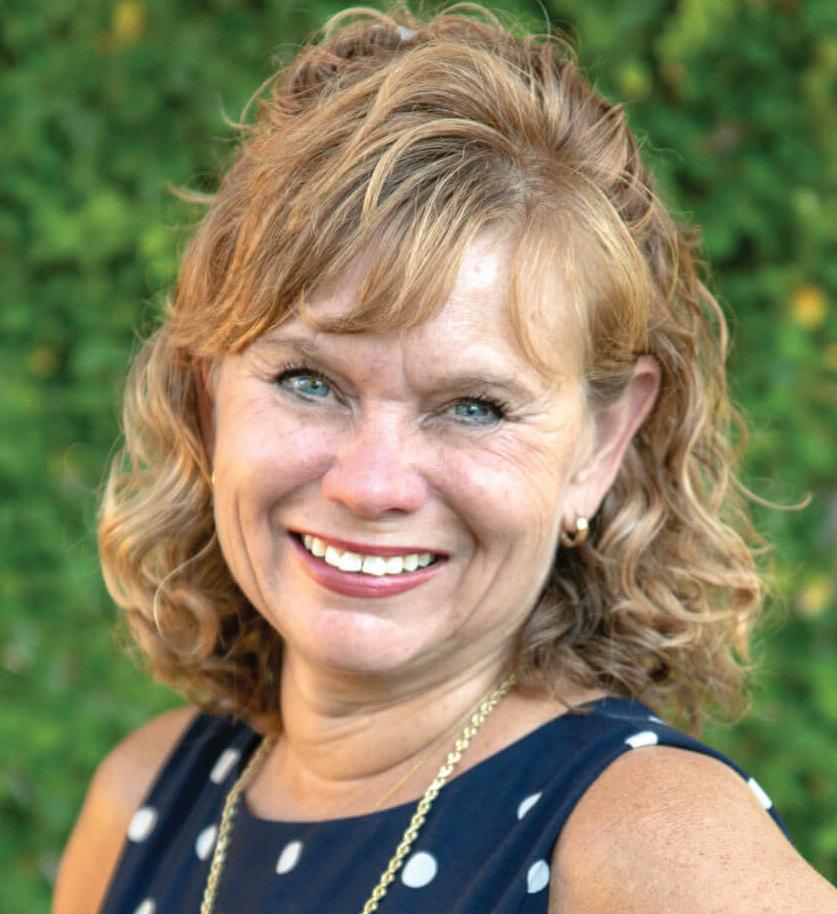
1)https://kjzz.org/content/1688246/arizona-state-sen-christine-marsh-praises-passage-fentanyl-testing-bill
